Walking In The Month Of July 2015

Did You Know? - Every minute you walk extends your life 1 1/2 to 2 minutes!
That's right, when it comes to lifespan, walking gives you a two-for-one special! Research shows that people who walk tend to live longer and the more they walk, the longer the extension. If you ever doubted it in the past, here's proof that every minute does indeed count. And don't dare think that adding a few minutes to your life isn't meaningful. Over time, those minutes
Regular, brisk exercise of any kind can improve confidence, stamina, energy, weight control and life expectancy and reduce stress. It can also reduce the risk of coronary heart disease, strokes, diabetes, high blood pressure, bowel cancer and osteoporosis.
Scientific studies have also shown that walking, besides its physical benefits, is also beneficial for the mind, improving memory skills, learning ability, concentration and abstract reasoning, as well as reducing stress and lifting spirits.
Sustained walking sessions for a minimum period of thirty to sixty minutes a day, five days a week, with the correct walking posture, reduce health risks and have various overall health benefits, such as reducing the chances of cancer, type 2 diabetes, heart disease, anxiety and depression.
Life expectancy is also increased even for individuals suffering from obesity or high blood pressure. Walking also improves bone health, especially strengthening the hip bone, and lowering the harmful low-density lipoprotein (LDL) cholesterol, and raising the useful high-density lipoprotein (HDL) cholesterol.
Studies have found that walking may also help prevent dementia and Alzheimer's.
July 30th 2015 Top


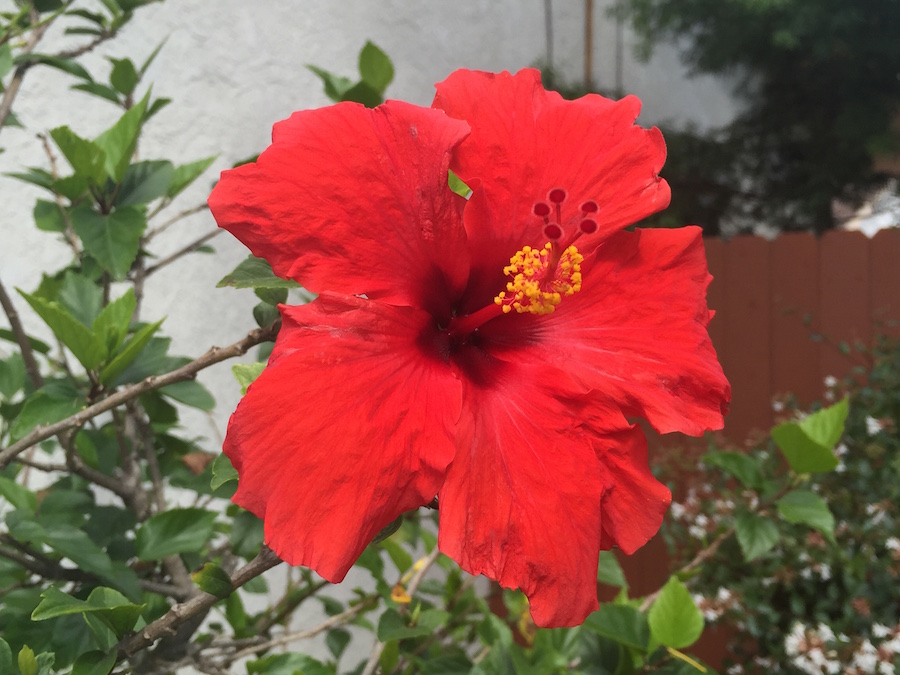
Definitely red!!!
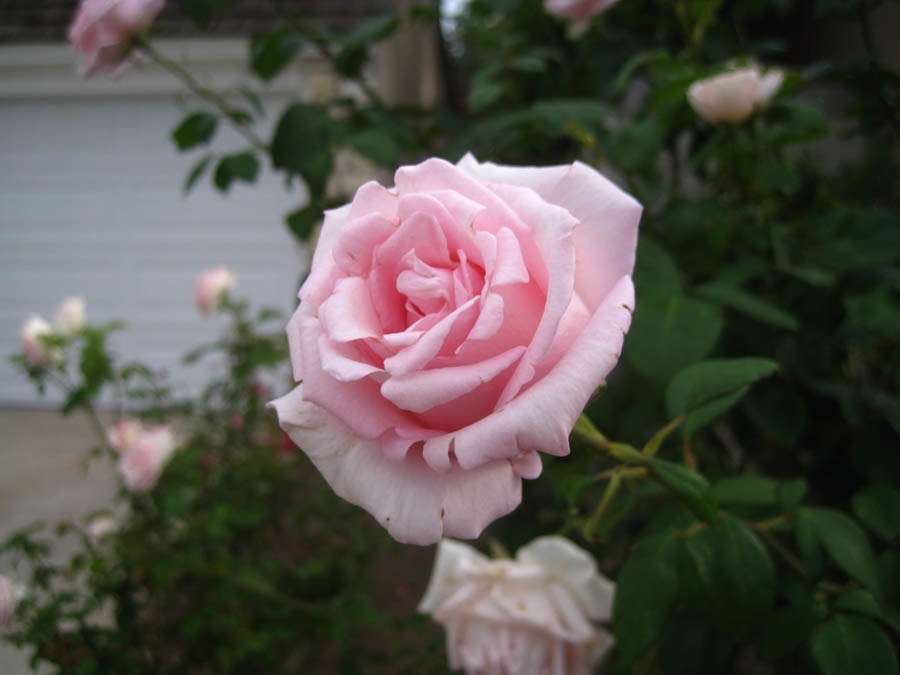
A rose is a rose is a rose
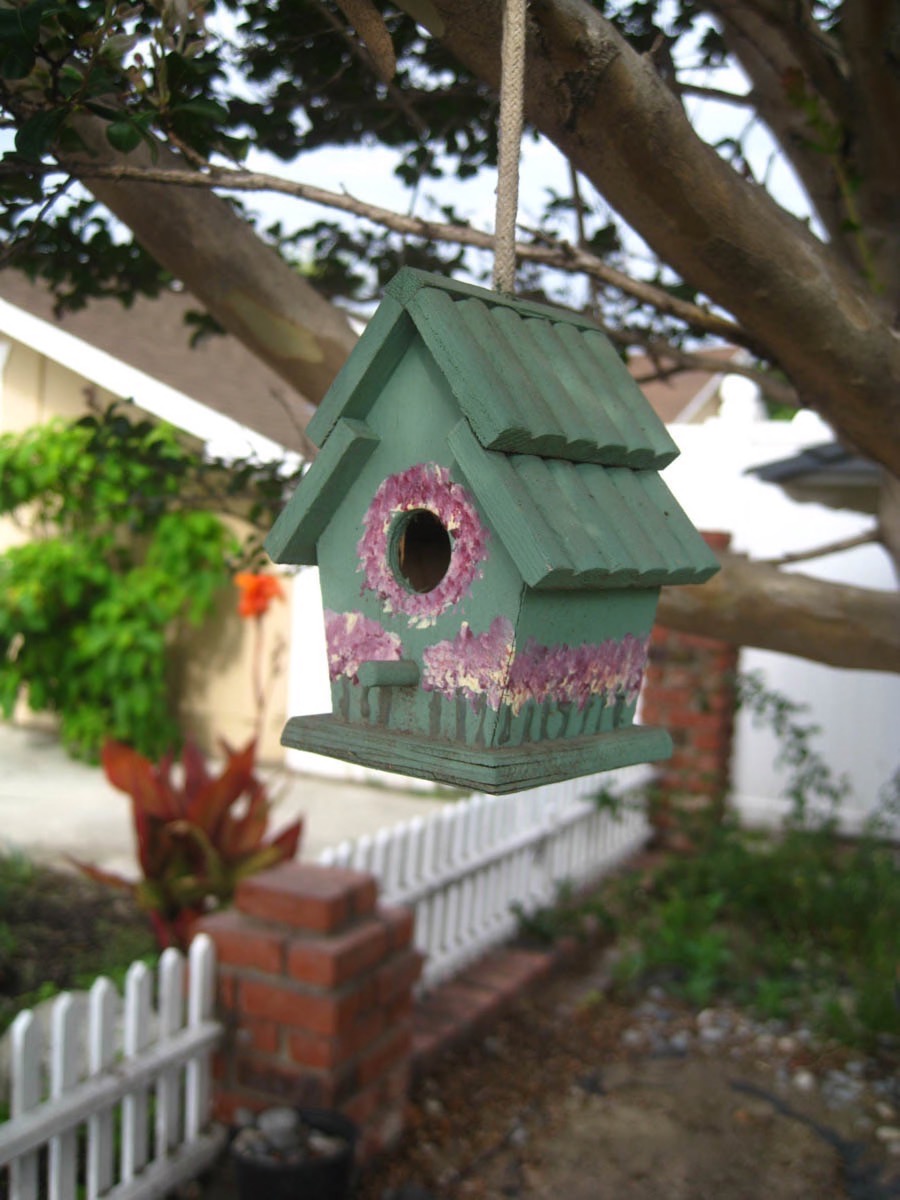
Awaiting an occupant

He had a beautiful smile

The drought has even hit the fountains
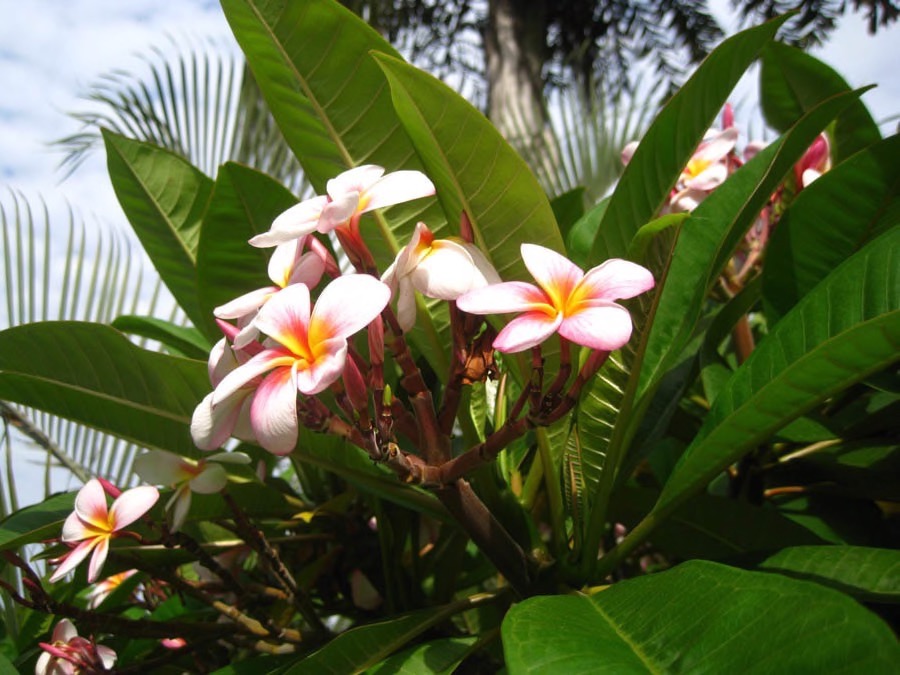
A bit of Hawaii in our hood
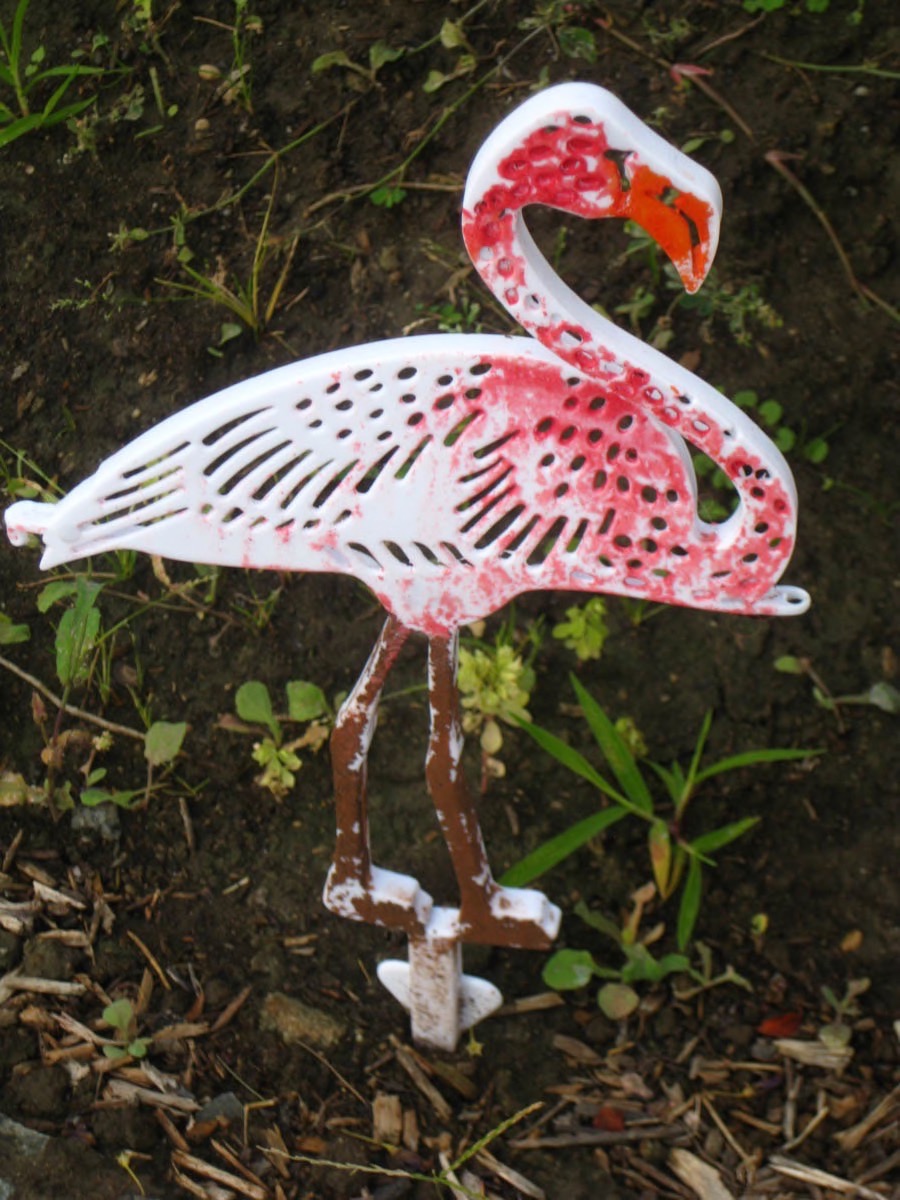
He has been around a while!
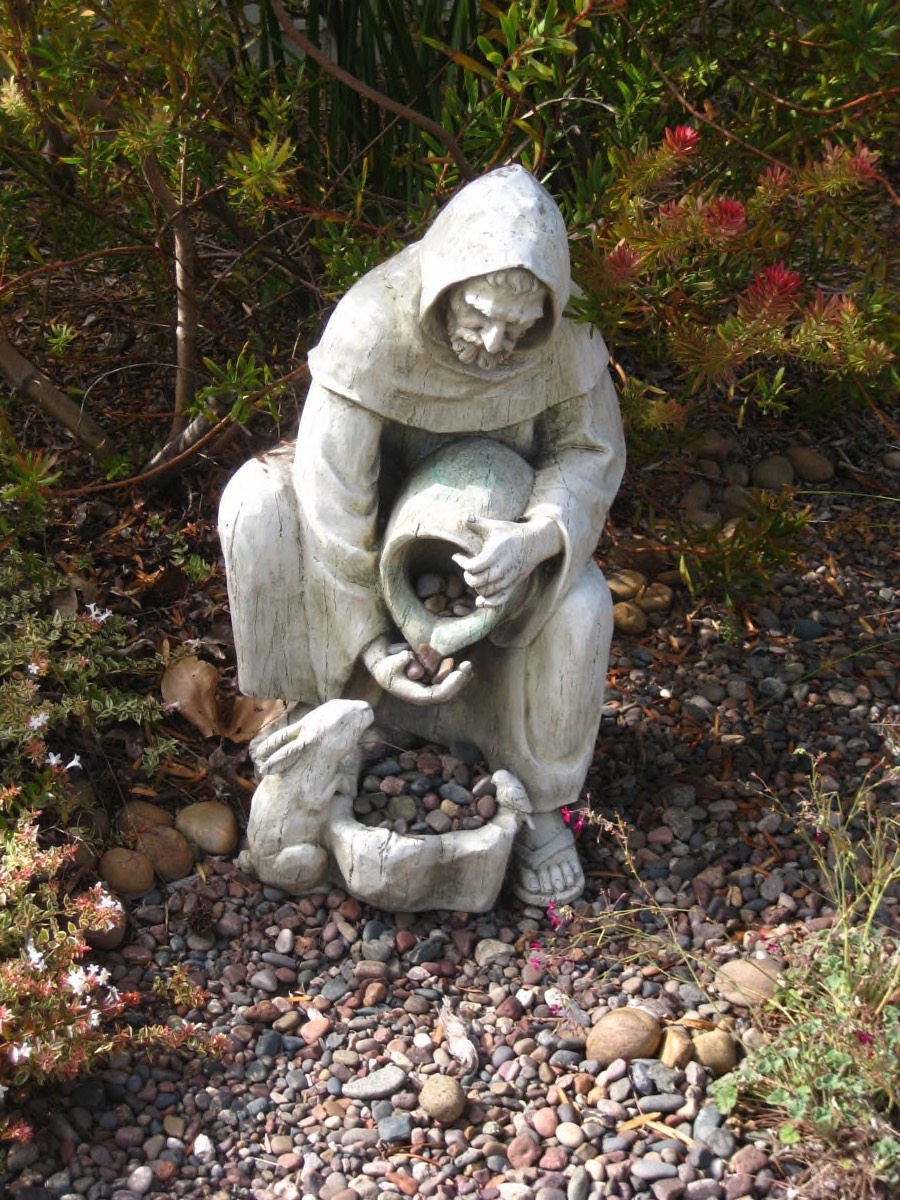
Counting rocks

More fungus... Quite pretty
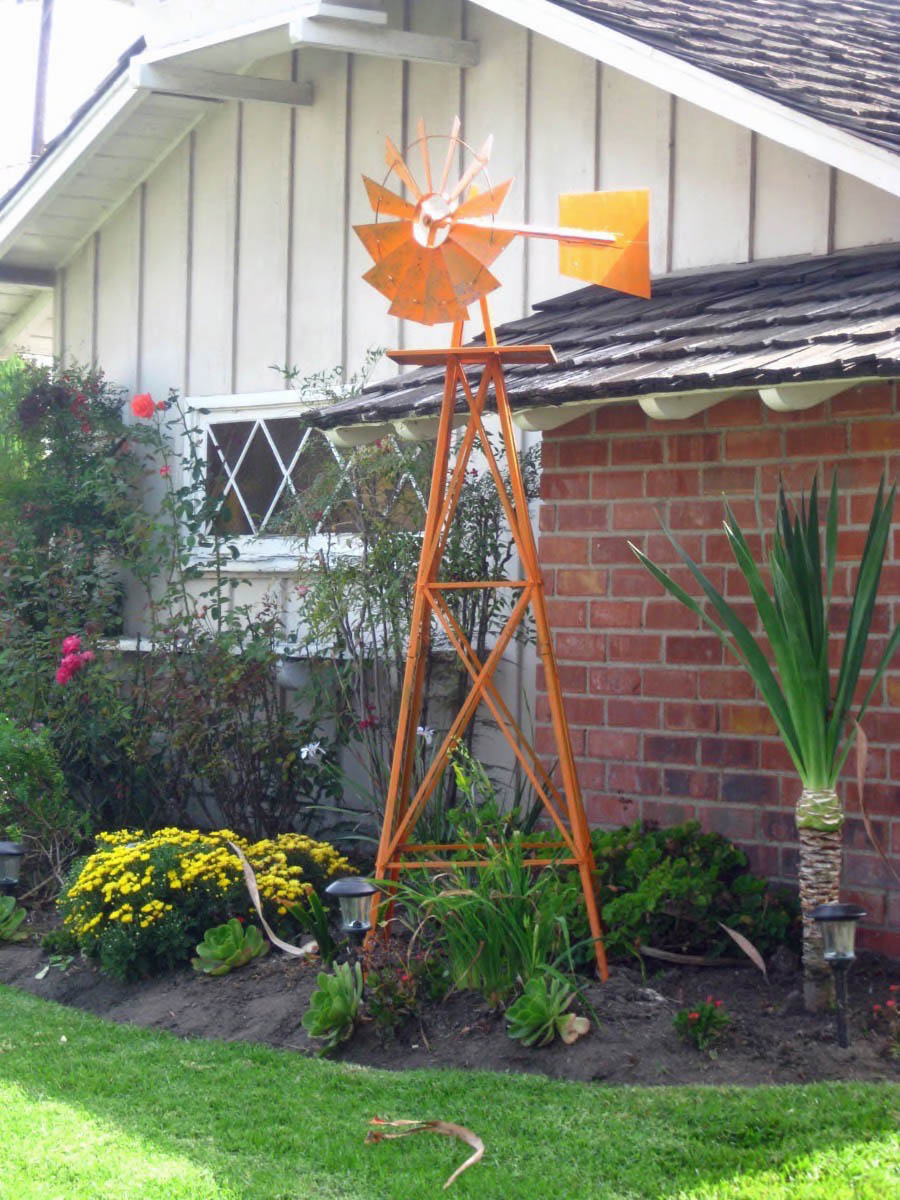
A wind turbine perhaps?
July 29th 2015 Top
Walking really feels pretty good plus I am getting to know a lot of doggies! Just shy of three miles this morning... We will walk another 3-4 this afternoon playig golf!


Walked around the park today...
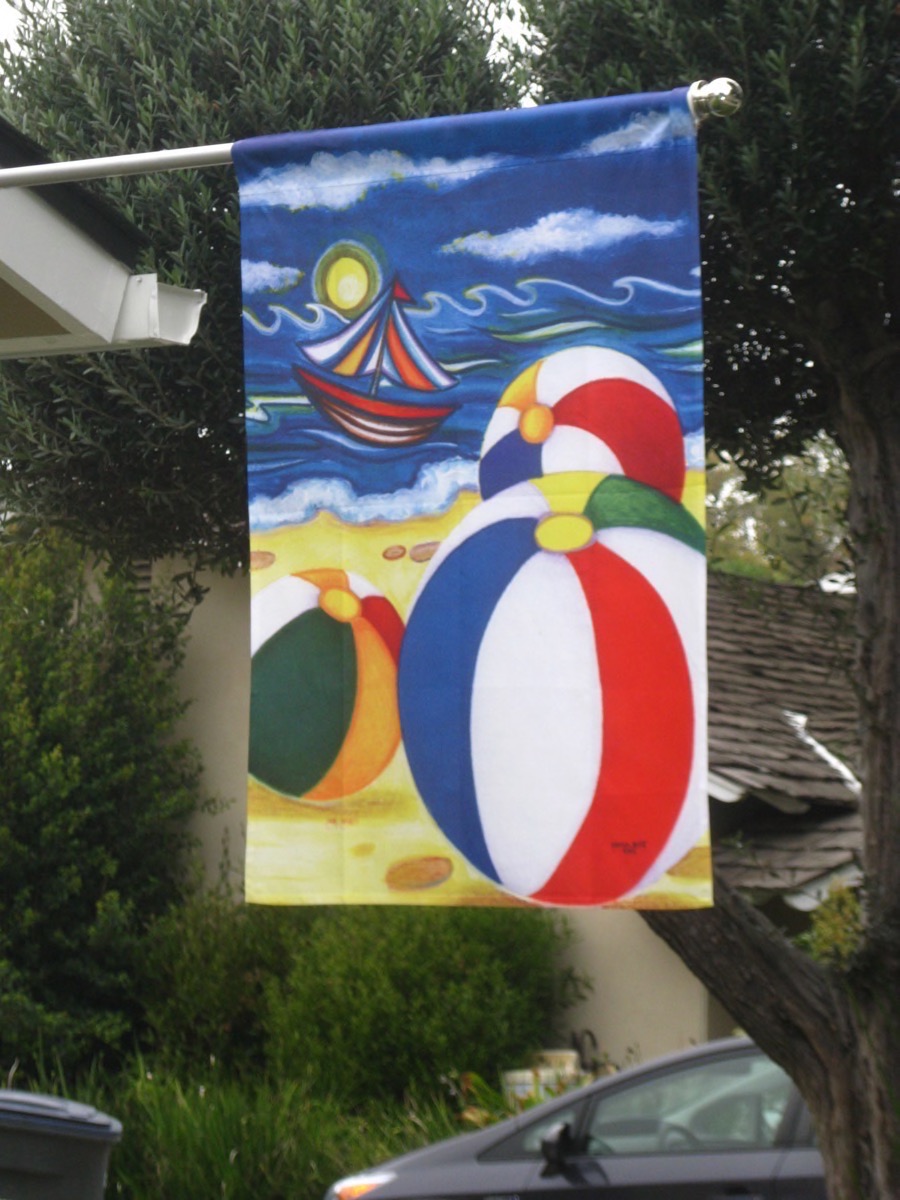
We are at the beach... Well, three miles from the beach
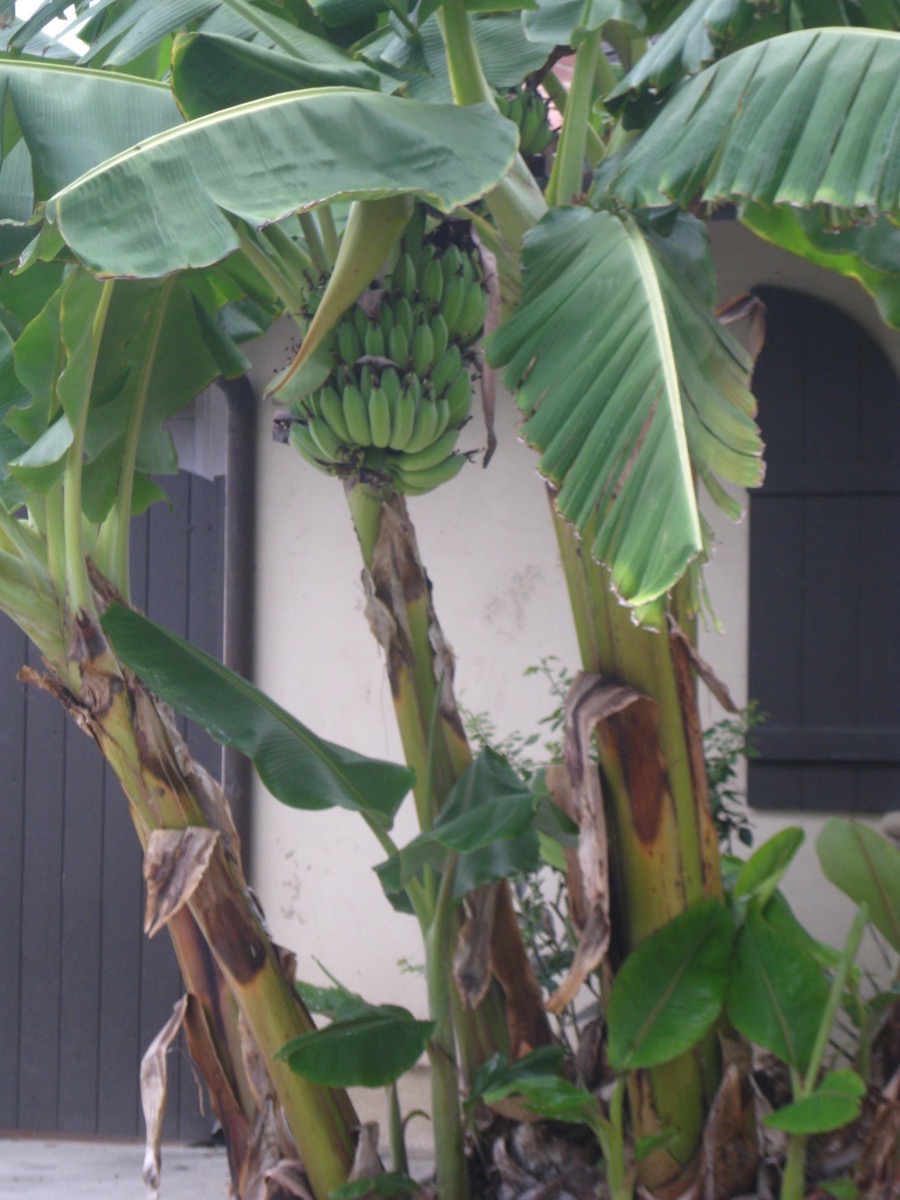
Bananas anauone?

Someone is going to be unhappy when they try to drive their car!
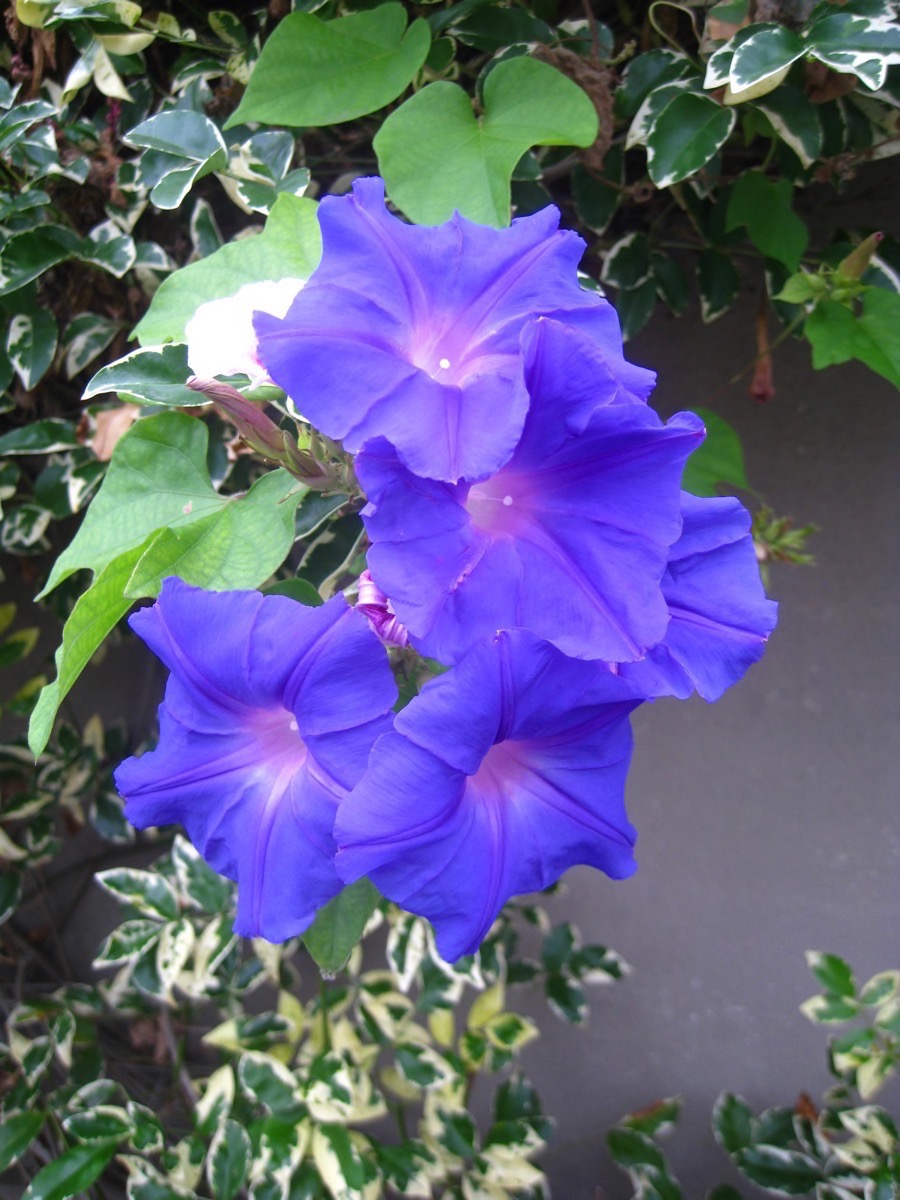
Morning Glory's were magnificent
Did You Know? - Morning glory (also written as morning-glory) is the common name for over 1,000 species of flowering plants in the family Convolvulaceae.
Most morning glory flowers unravel into full bloom in the early morning. The flowers usually start to fade a few hours before the "petals" start showing visible curling.
Because of their fast growth, twining habit, attractive flowers, and tolerance for poor, dry soils, some morning glories are excellent vines for creating summer shade on building walls when trellised, thus keeping the building cooler and reducing heating and cooling costs.
Morning glory was first known in China for its medicinal uses, due to the laxative properties of its seeds.
Ipomoea aquatica, known as water spinach, water morning glory, water convolvulus, ong-choy, kang-kung, or swamp cabbage, is popularly used as a green vegetable, especially in East and Southeast Asian cuisines.
July 28th 2015 Top
"Everywhere is walking distance if you have the time." ― Steven Wright
Off and running... I decided to take a new route... Turn at every available corner! Intyeresting!



First left and then right!
Three miles went very fast
c

Lot's of rock waterways are springing up in the hood
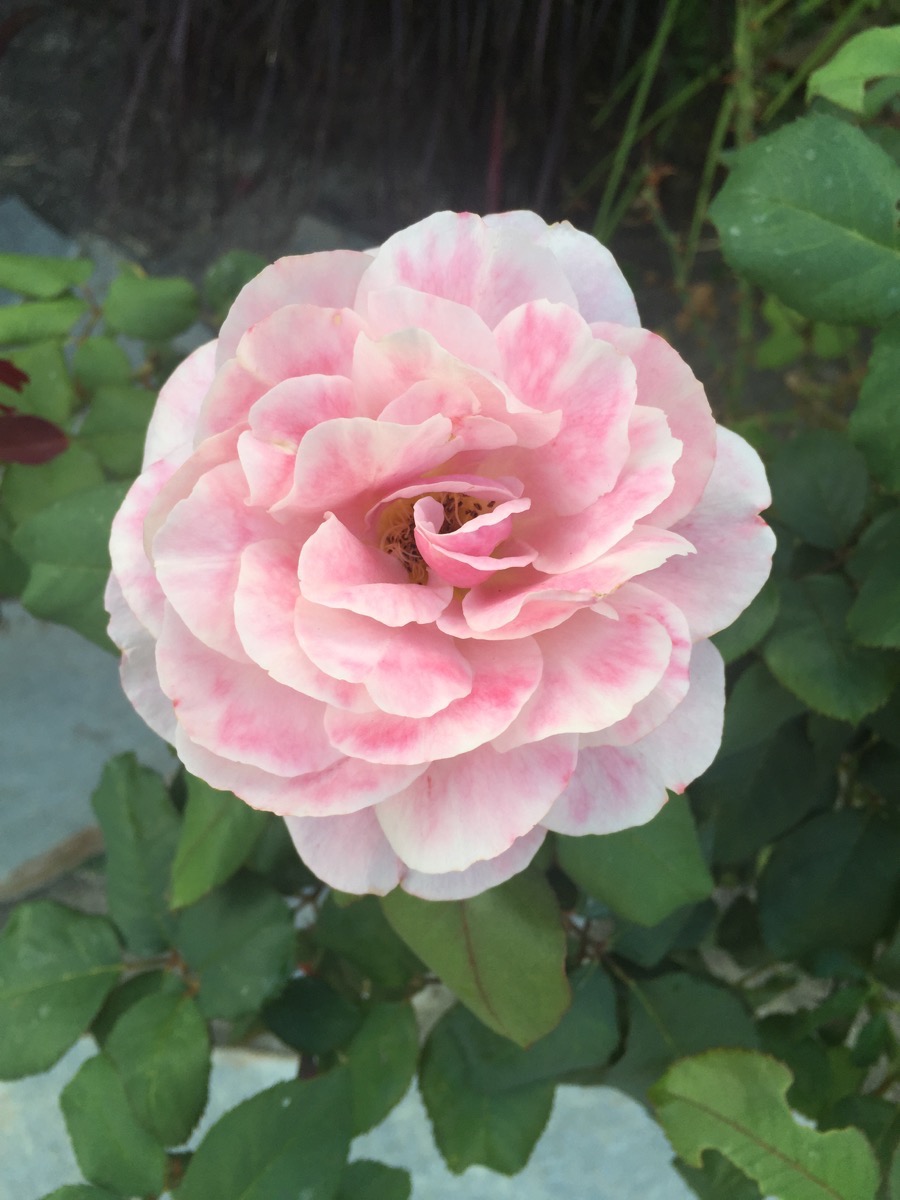
"I am pink!"
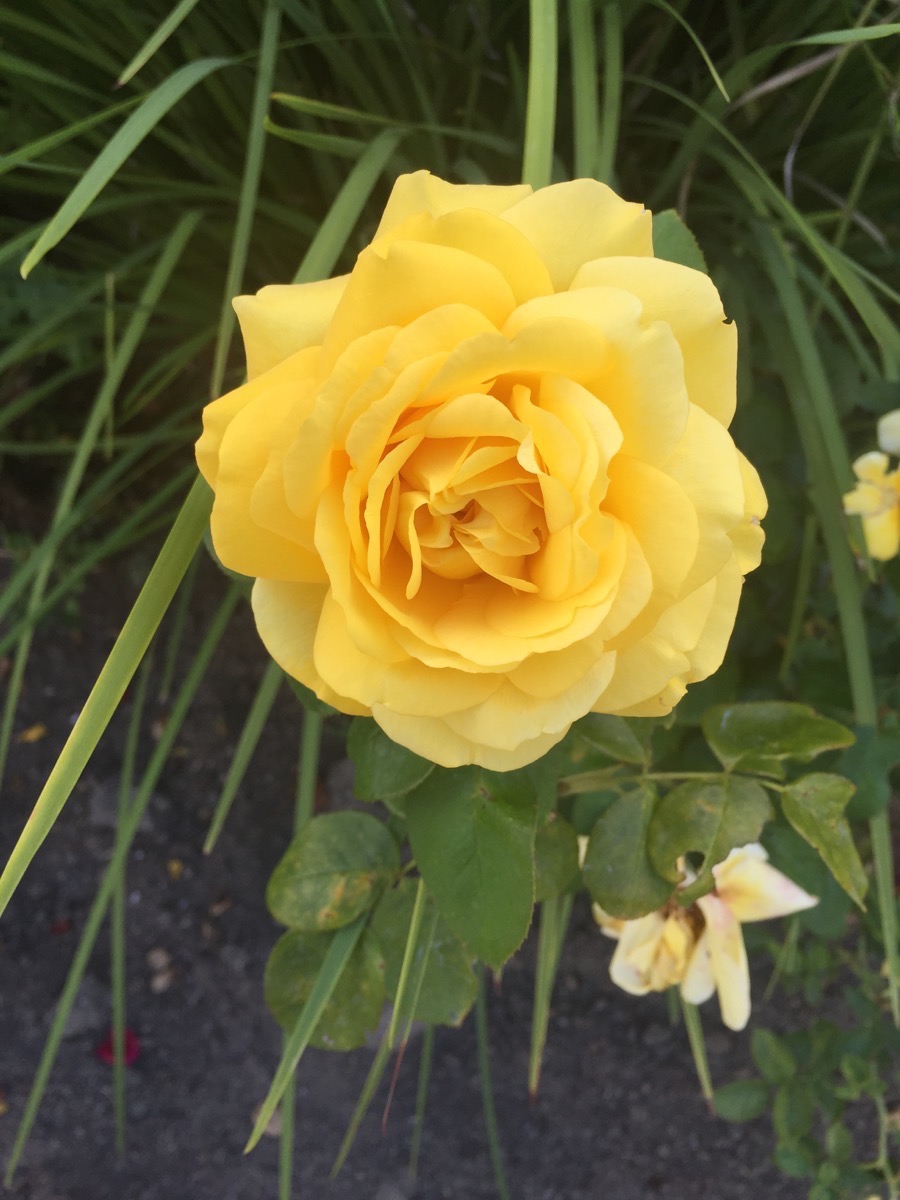
"I am yellow"
Did You Know?
-
People have been passionate about roses since the beginning of time. In fact, it is said that the floors of Cleopatra's palace were carpeted with delicate rose petals, and that the wise and knowing Confucius had a 600 book library specifically on how to care for roses.
-
Wherefore art thou rose? In the readings of Shakespeare, of course. He refers to roses more than 50 times throughout his writings.
- 1,000 years old. That's the age the world's oldest living rose is thought to be. Today it continues to flourish on the wall of the Hildesheim Cathedral of Germany.
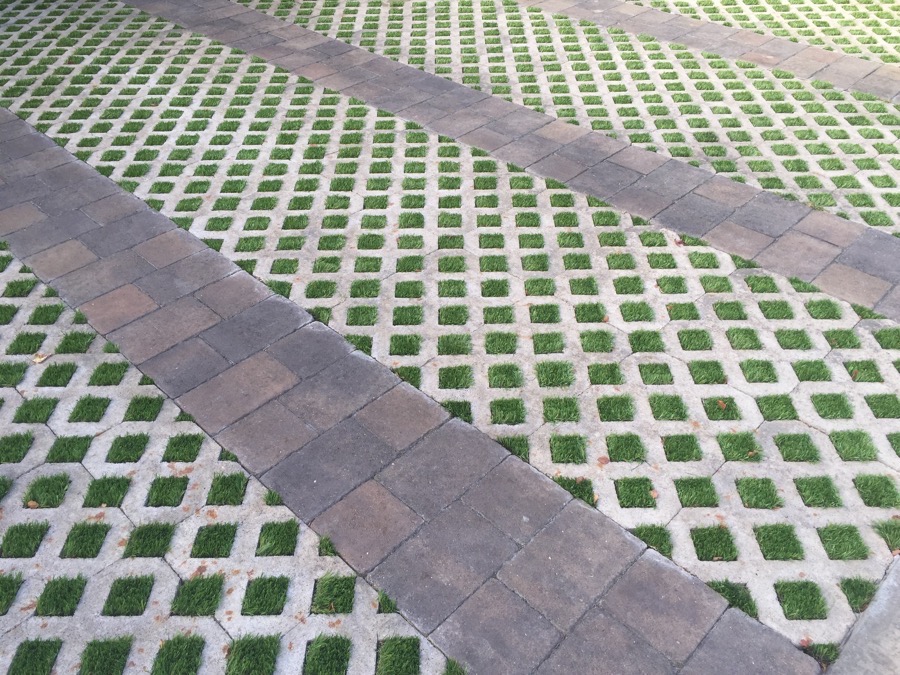
Interesting driveway

"Roar... I be fearless and brave!"

Another river runneth over
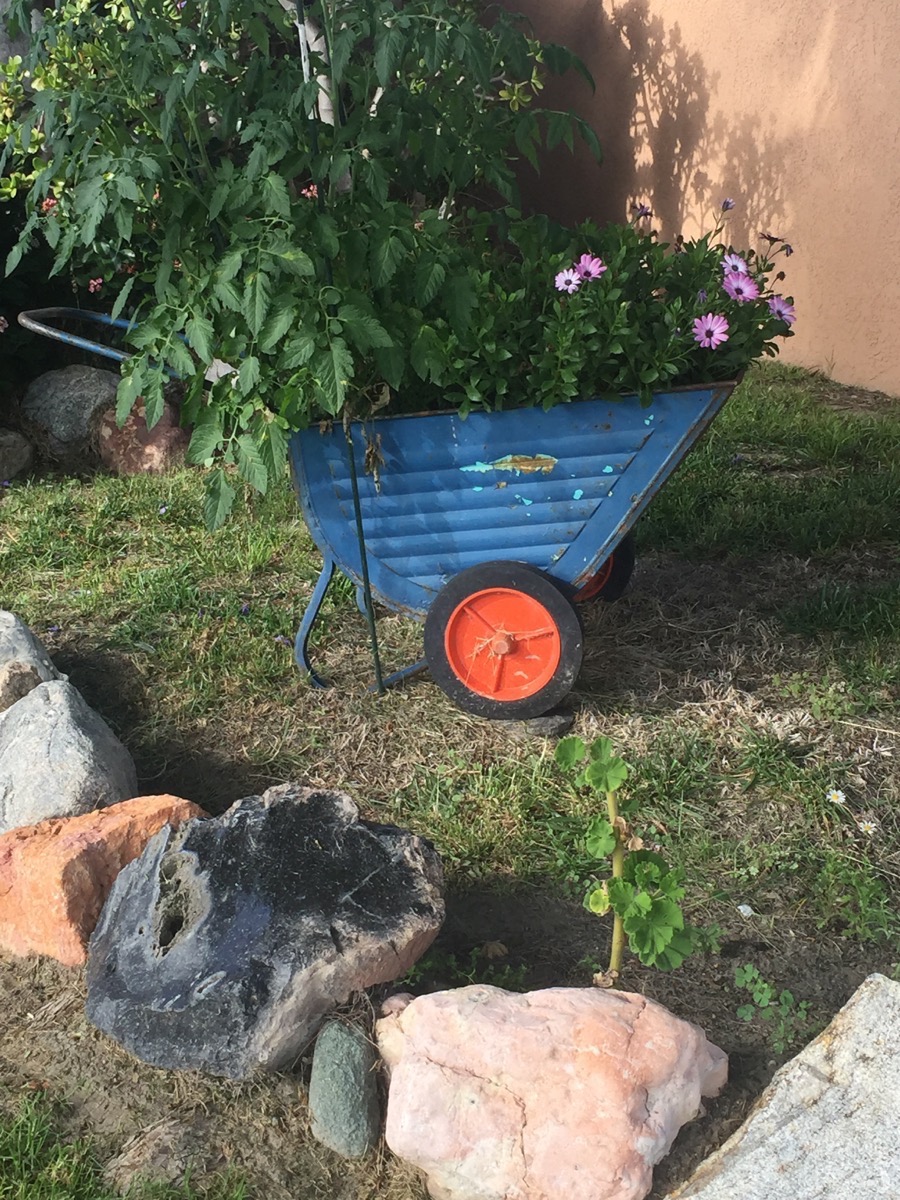
What to do with old garden carts!
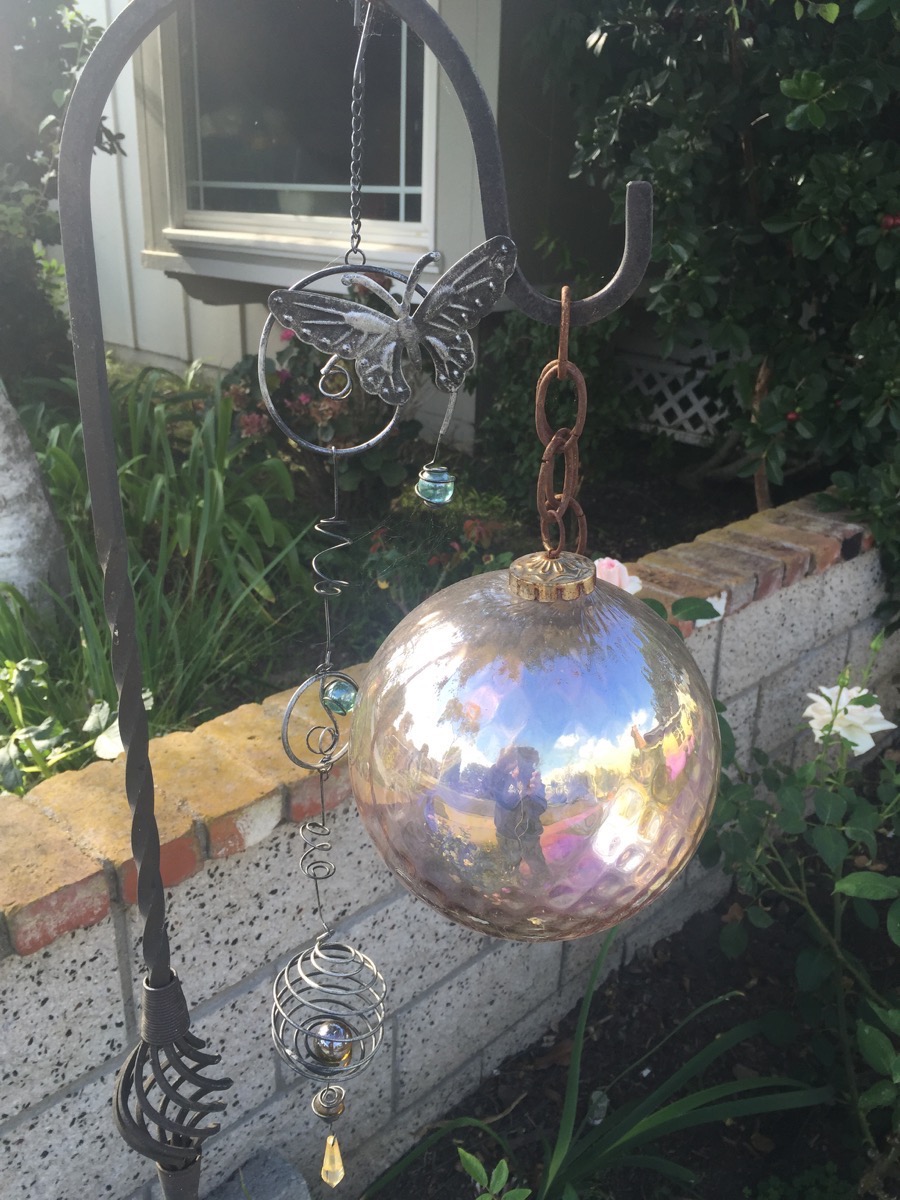
Do you see my shaddow?
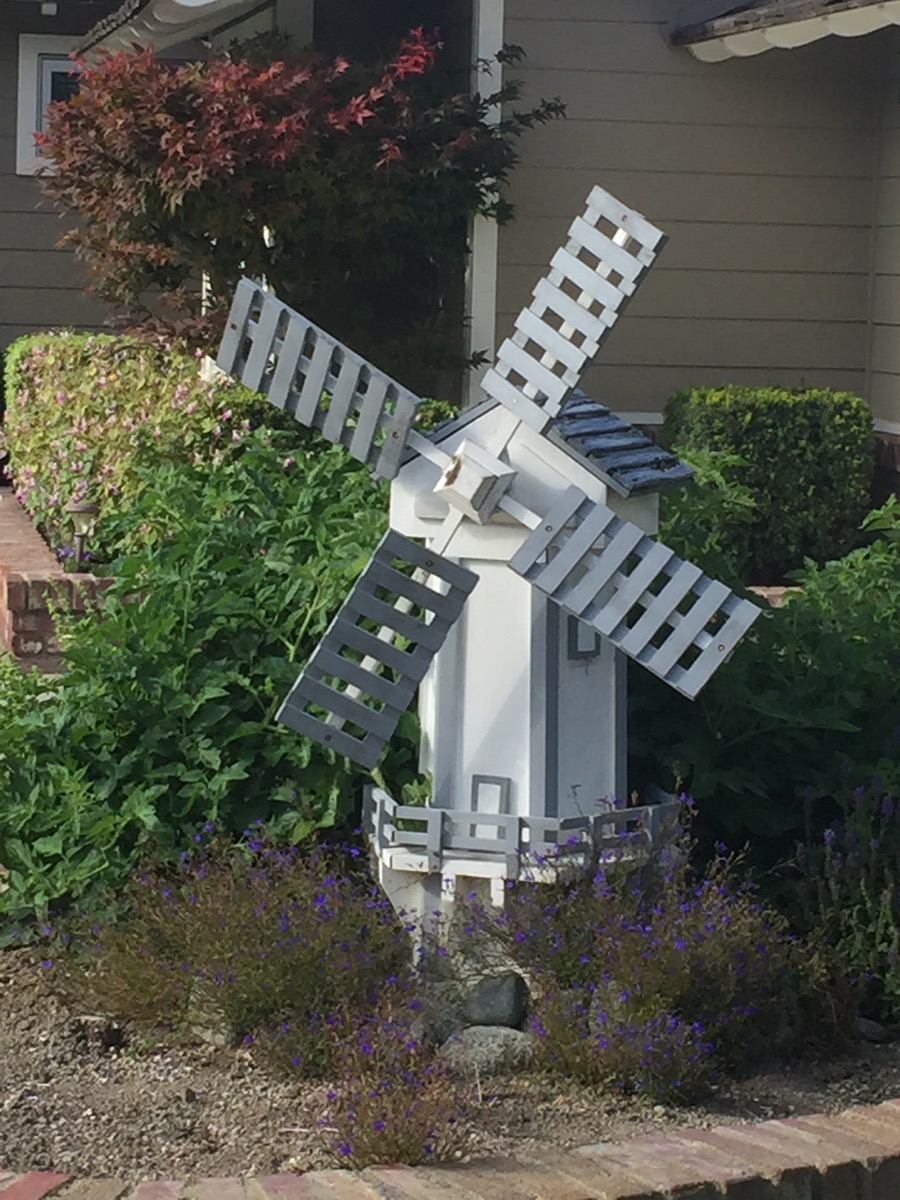
No, I did not walk to Holland!

Talk about bright orange!
Did You Know? - A tile is a manufactured piece of hard-wearing material such as ceramic, stone, metal, or even glass, generally used for covering roofs, floors, walls, showers, or other objects such as tabletops.
Alternatively, tile can sometimes refer to similar units made from lightweight materials such as perlite, wood, and mineral wool, typically used for wall and ceiling applications.
In another sense, a tile is a construction tile or similar object, such as rectangular counters used in playing games (see tile-based game). The word is derived from the French word tuile, which is, in turn, from the Latin word tegula, meaning a roof tile composed of fired clay.
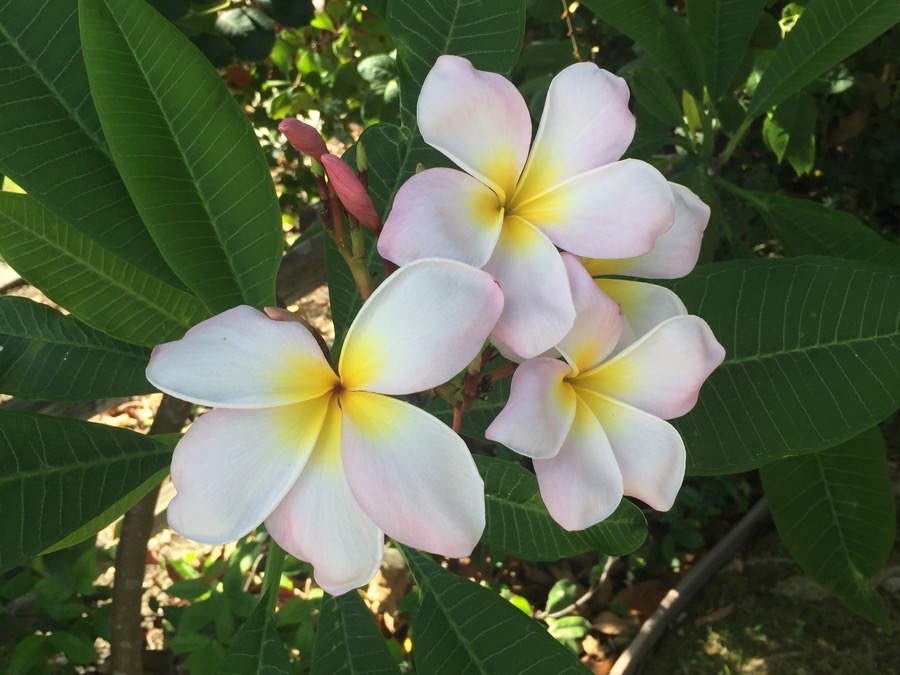
Simply beautiful!
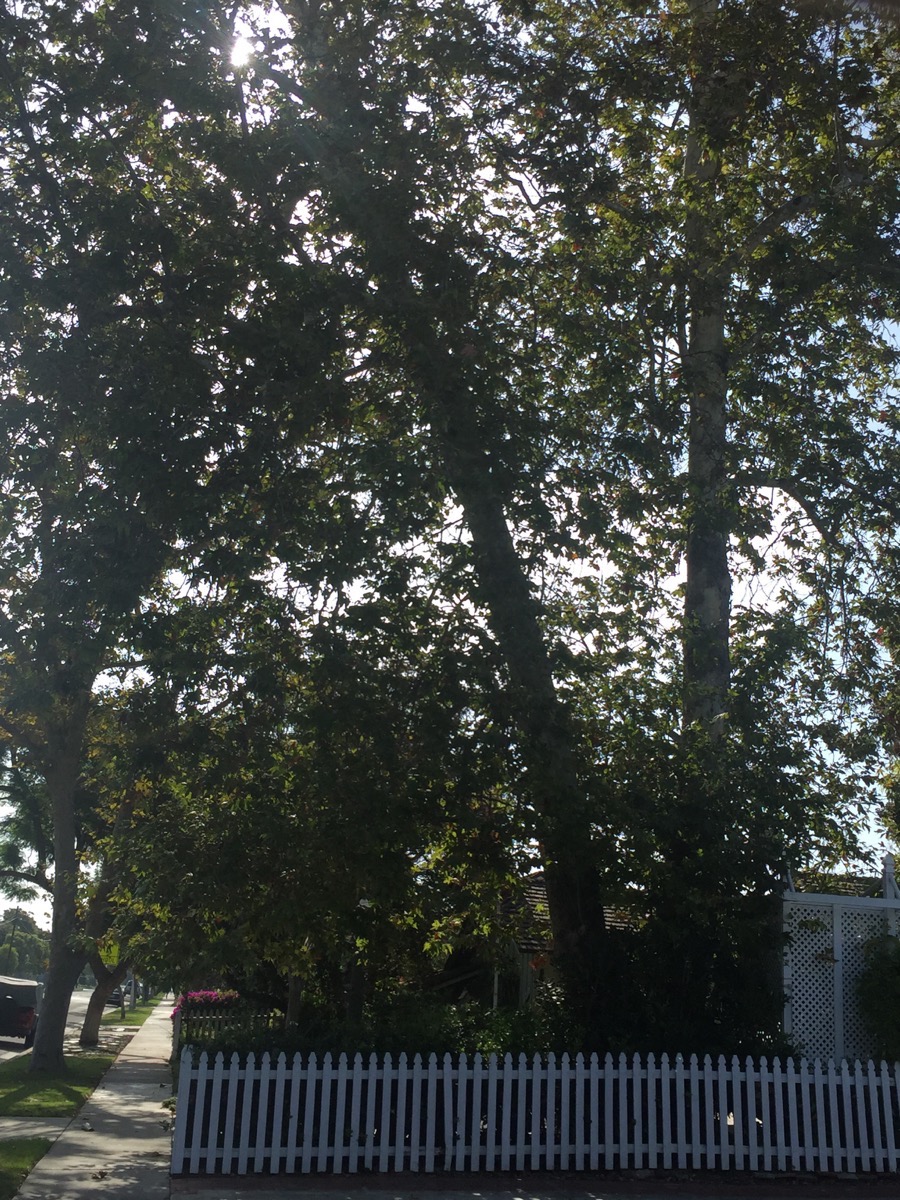
This house definitely has a lot of shade!

They are trying to decide whether to take a leaf-bath or not!
July 26th 2015 Top
I was off like a herd of turtles! About half way through I got thirsty and stopped by the "health market" in Rossmoor to get something to drink! I tried something called a blueberry probiotic something or other... It was horrible.



Our sunflower (in our yard) is getting bigger every day!
Did You Know? - Helianthus or sunflowers (from the Greek: Hēlios, "sun" and anthos, "flower") is a genus of plants comprising about 70 species in the family Asteraceae, all of which are native to North America except three species in South America.
The common name, "sunflower," also applies to the popular annual species Helianthus annuus, the common sunflower.
This and other species, notably Jerusalem artichoke (H. tuberosus), are cultivated in temperate regions as food crops and ornamental plants.

Our neighborhood still have houses with white pickett fences!
Did You Know? - Picket fences are particularly popular in the United States, where the style has been used since America's earliest colonial era and remains popular today. They are a decorative way to contain pets and children without blocking views, and are used around both front and back yards.
Traditionally picket fences were made out of wood and painted white (or whitewashed), but now picket fences are also widely available in polyvinyl chloride (PVC).
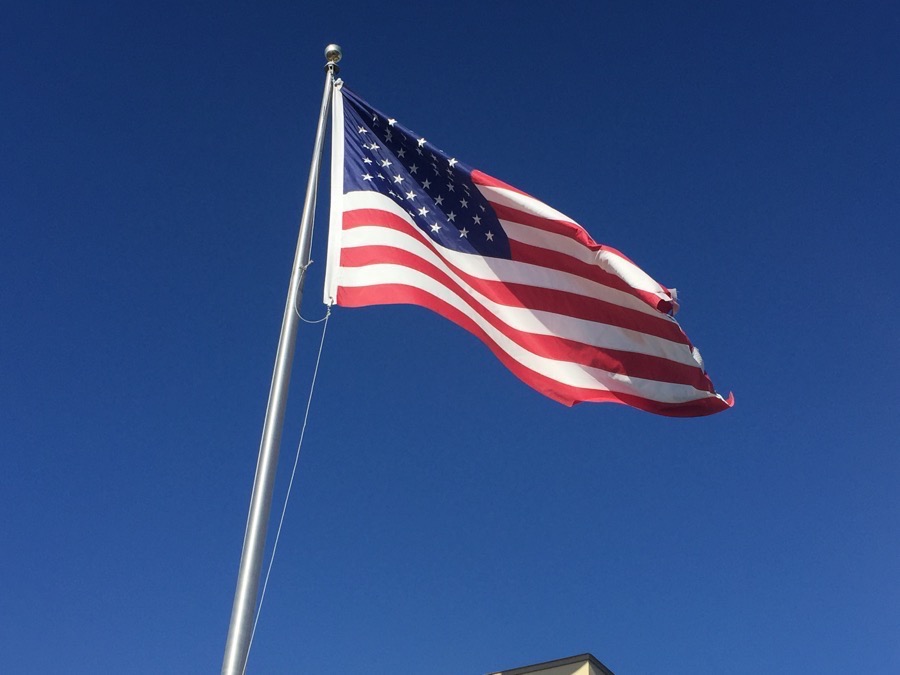
Chick-fil-A is closed on Sundays but flies the flag!
I like that company!!

We have a oyster mushrooms going on here...
Probably edible but I am not trying it!

He waved at me as I passed by!
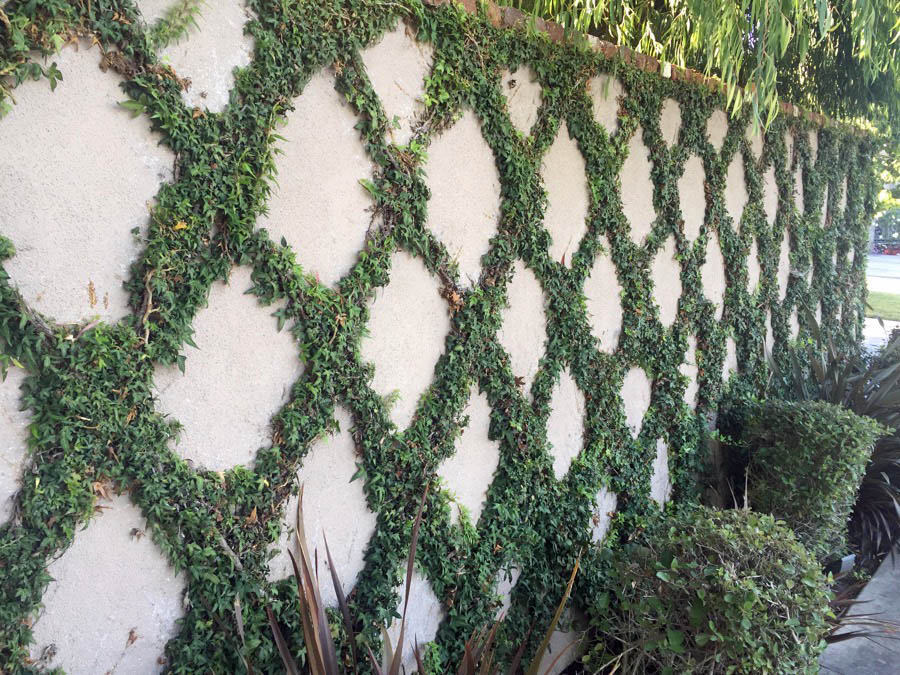
The vines on the wall was amazing!

The leaves are beginning to change colors... Fall is on tghe way!
Did You Know? - A green leaf is green because of the presence of a pigment known as chlorophyll, which is inside an organelle called a chloroplast. When they are abundant in the leaf's cells, as they are during the growing season, the chlorophylls' green color dominates and masks out the colors of any other pigments that may be present in the leaf. Thus the leaves of summer are characteristically green.
n late summer, as daylight hours shorten and temperatures cool, the veins that carry fluids into and out of the leaf are gradually closed off as a layer of special cork cells forms at the base of each leaf. As this cork layer develops, water and mineral intake into the leaf is reduced, slowly at first, and then more rapidly. It is during this time that the chlorophyll begins to decrease.
July 25th 2015 Top
It was a beautiful morning and the humidity felt low the chart below says the humidity was quite high!! Please enoy some of the new things I discovered!
I still find each day too short for all the thoughts I want to think, all the walks I want to take, all the books I want to read and all the friends I want to see. ~John Burroughs



Almost four miles this morning!
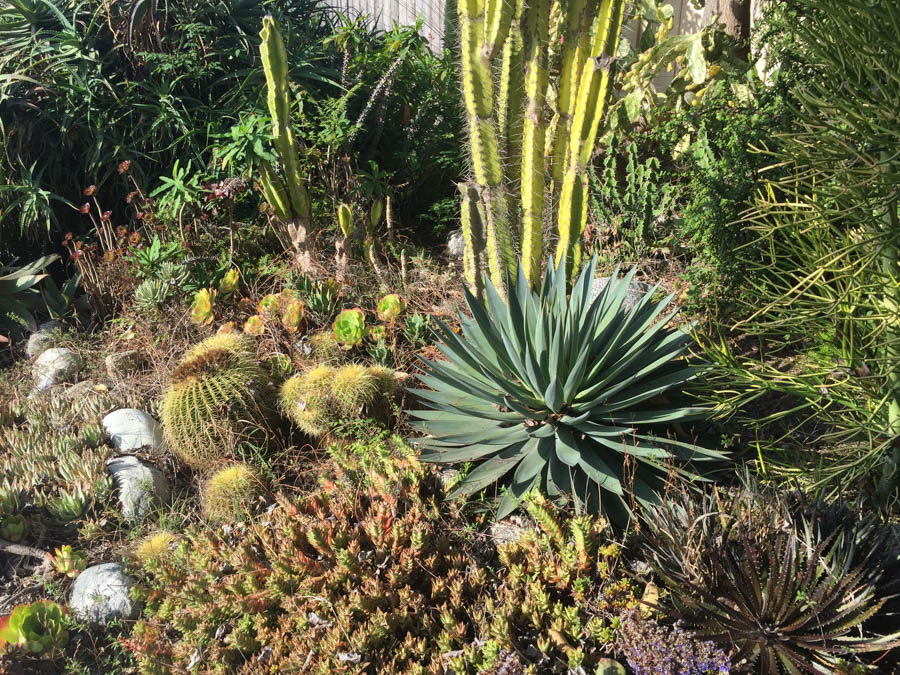
The cactus
gardens seemed to be enjoyed the
little rain we had
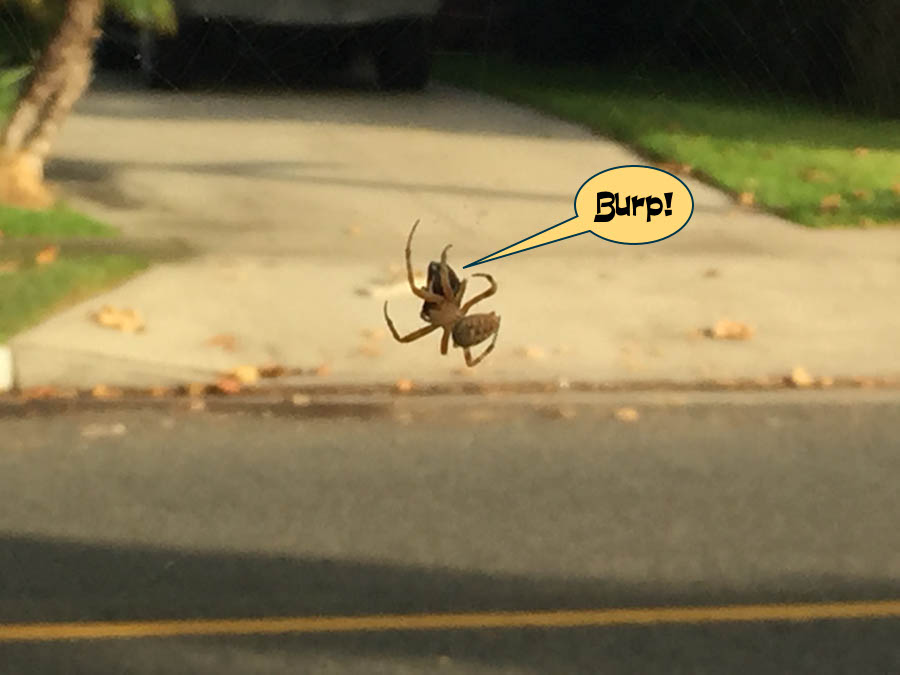
Mr. Spider had just caught the fly... Took several shots to get it focused
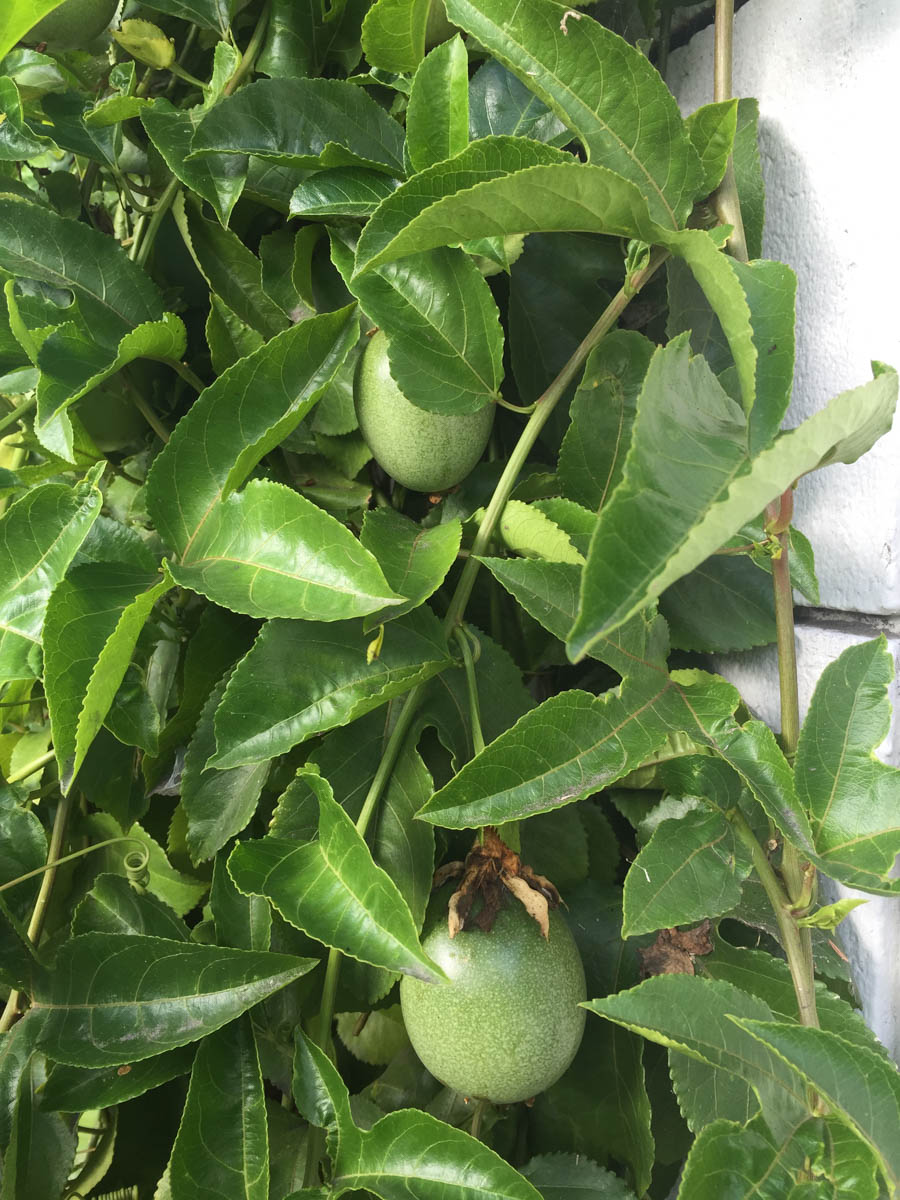
The passion fruit are beautiful
Did You Know? - Passiflora edulis is a vine species of passion flower that is native to Brazil, Paraguay and northern Argentina. Its common names include passion fruit (US), passionfruit (UK and Commonwealth), and purple granadilla (South Africa).
It is cultivated commercially in tropical and subtropical areas for its sweet, seedy fruit and is widely grown in several countries of South America, Central America, the Caribbean, Africa, Southern Asia, Israel, Australia, Hawaii (Liliko'i) and United States.
The passion fruit is round to oval, either yellow or dark purple at maturity, with a soft to firm, juicy interior filled with numerous seeds. The fruit is both eaten and juiced; passion fruit juice is often added to other fruit juices to enhance aroma.
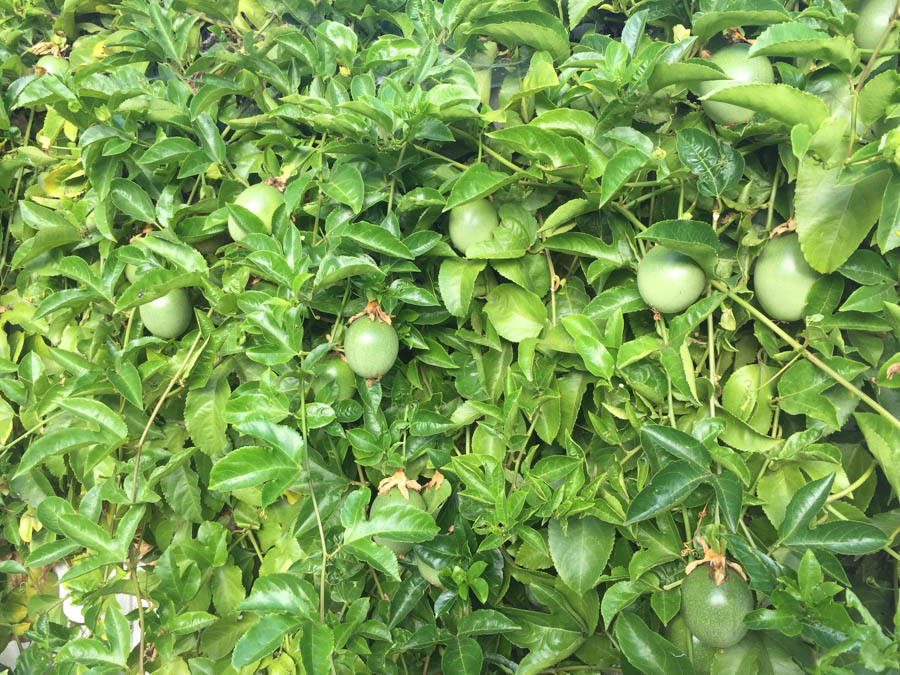
Passionfruit acquired its name from Spanish missionaries who thought
parts of the plant's flower resembled different religious symbols.
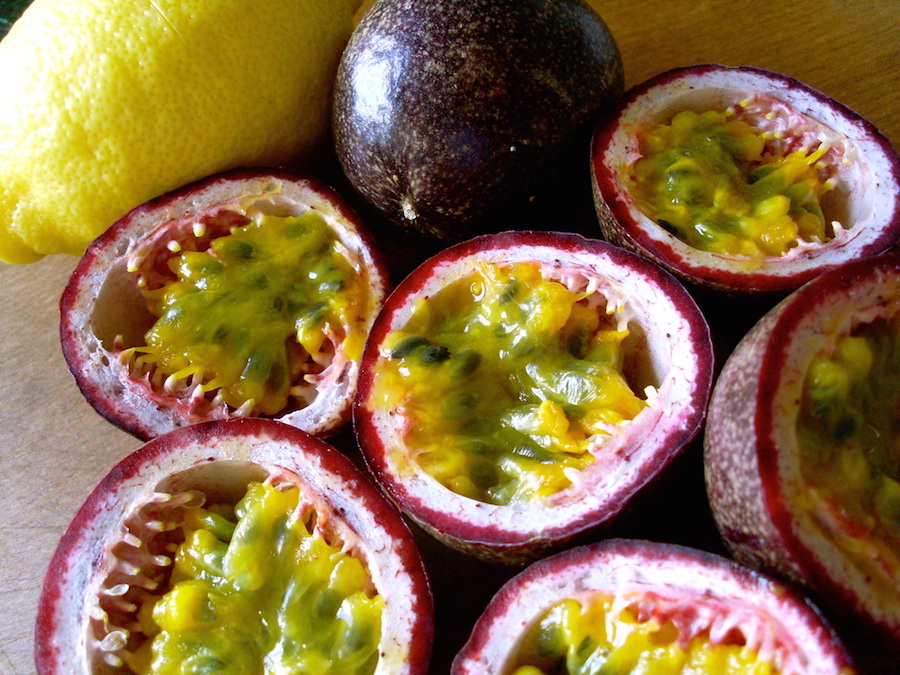
When the fruit gets dark it will be ready to eat
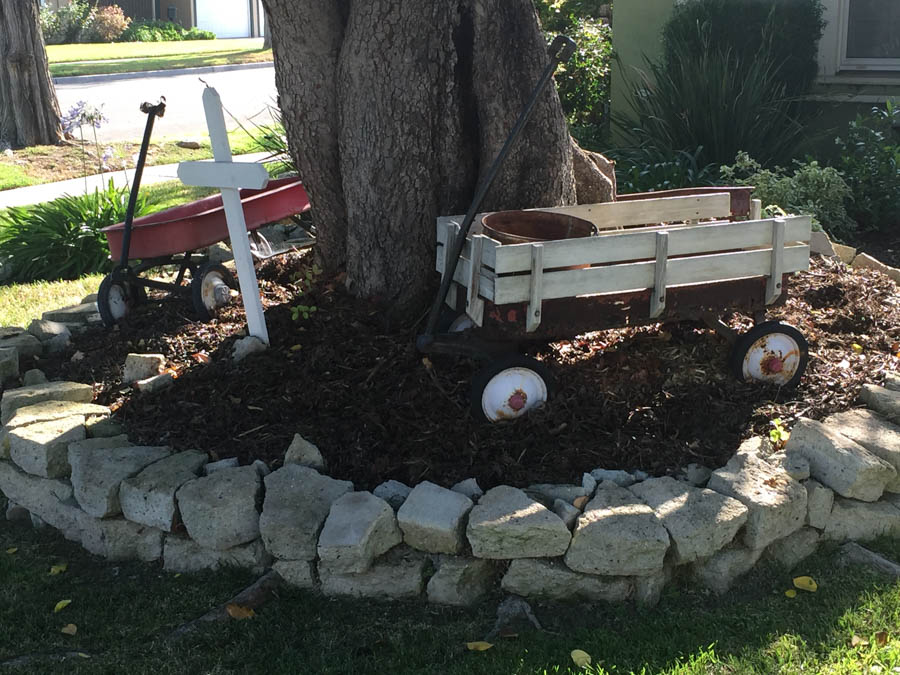
Decorations in the front yards take all forms!
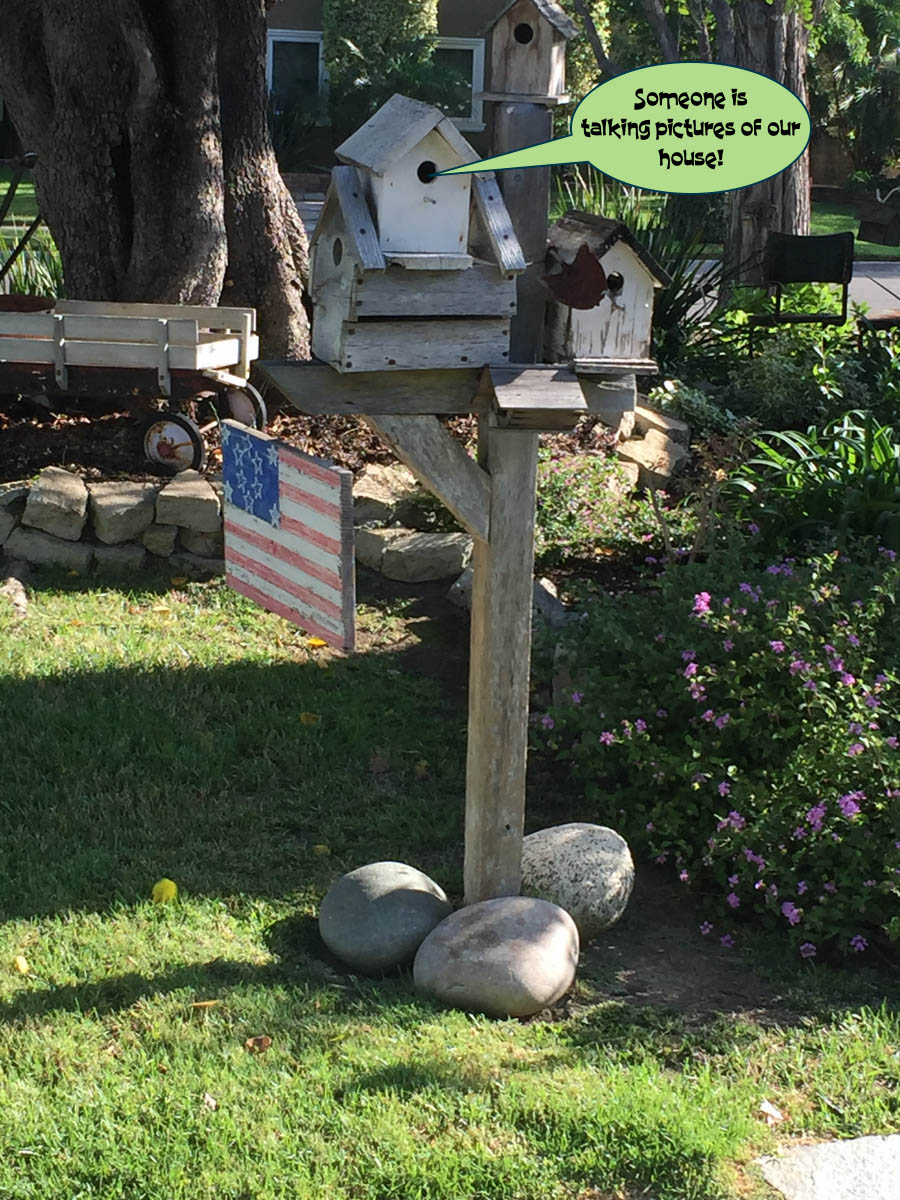
Four bird houses on one post!
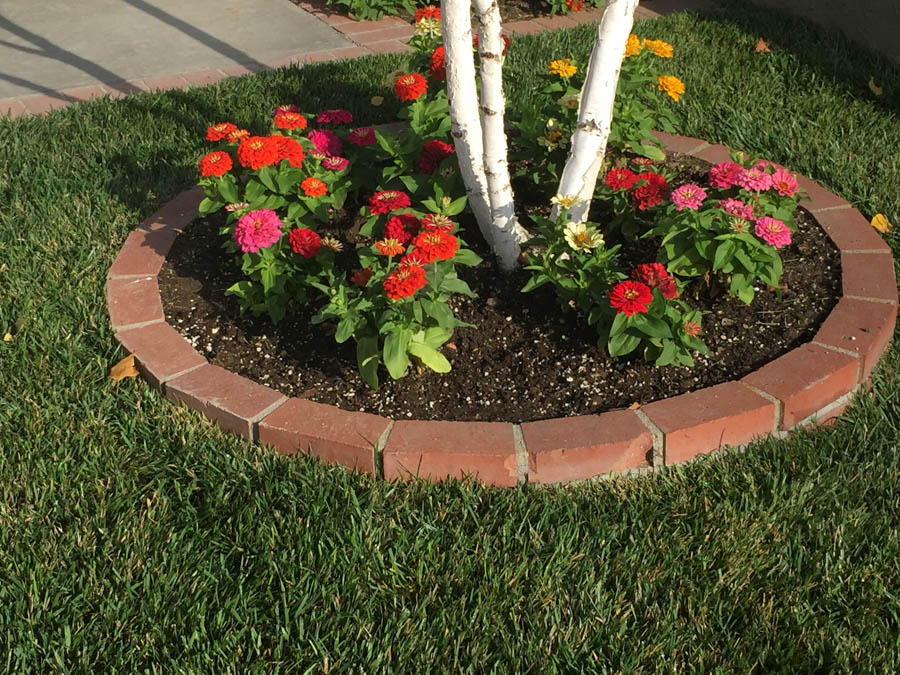
The flowers were so bright this morning
July 22nd 2015 Top
I forgot to switch the iPhone on when I started walking but today was about three miles.
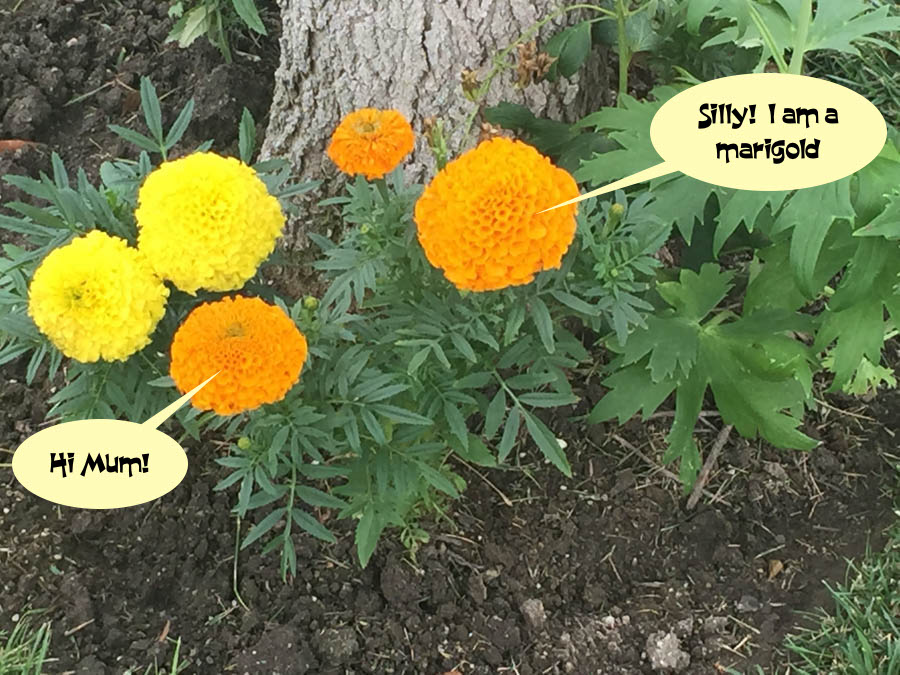
The flowers talk to Paul on his walks!
Did You Know? - Calendula officinalis (pot marigold, ruddles, common marigold, garden marigold, English marigold, or Scottish marigold) is a plant in the genus Calendula of the family Asteraceae.
It is probably native to southern Europe, though its long history of cultivation makes its precise origin unknown, and it may possibly be of garden origin. It is also widely naturalised further north in Europe (north to southern England) and elsewhere in warm temperate regions of the world.
Pot marigold florets are edible. They are often used to add color to salads or added to dishes as a garnish and in lieu of saffron. The leaves are edible but are often not palatable. They have a history of use as a potherb and in salads.
Flowers were used in ancient Greek, Roman, Middle Eastern, and Indian cultures as a medicinal herb as well as a dye for fabrics, foods, and cosmetics. Many of these uses persist today. They are also used to make oil that protects the skin.
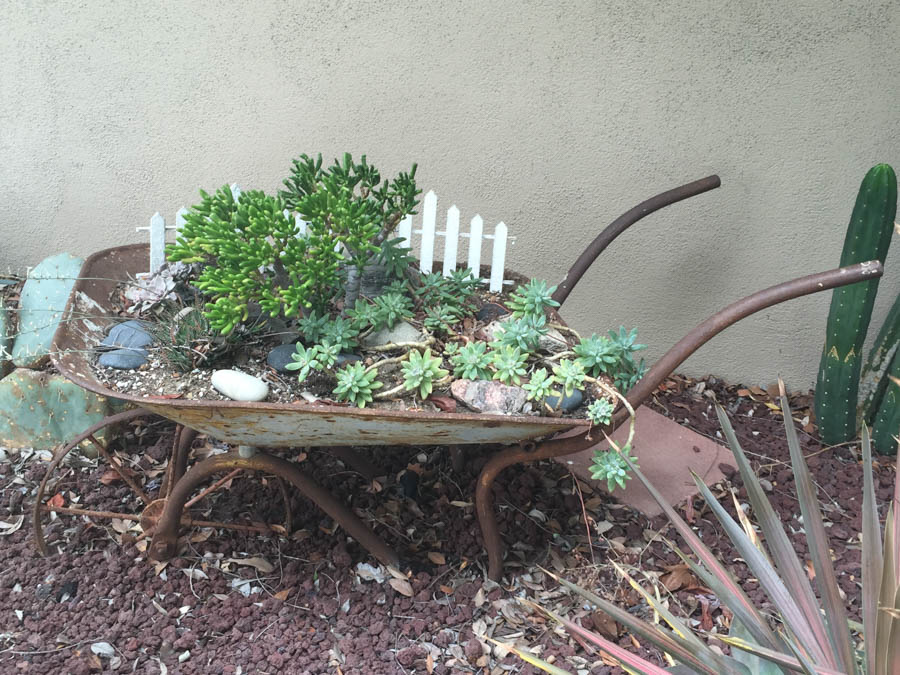
Take your garden with you!
Did You Know? - A wheelbarrow is a small hand-propelled vehicle, usually with just one wheel, designed to be pushed and guided by a single person using two handles at the rear, or by a sail to push the ancient wheelbarrow by wind. The term "wheelbarrow" is made of two words: "wheel" and "barrow." "Barrow" is a derivation of the Old English "bearwe" which was a device used for carrying loads.
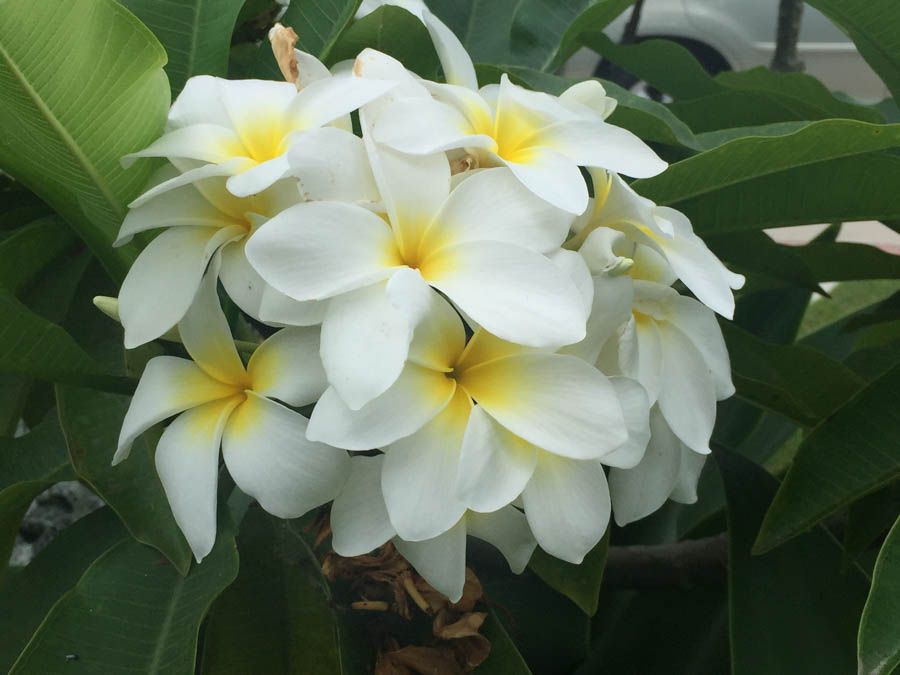
Almost in Hawaii
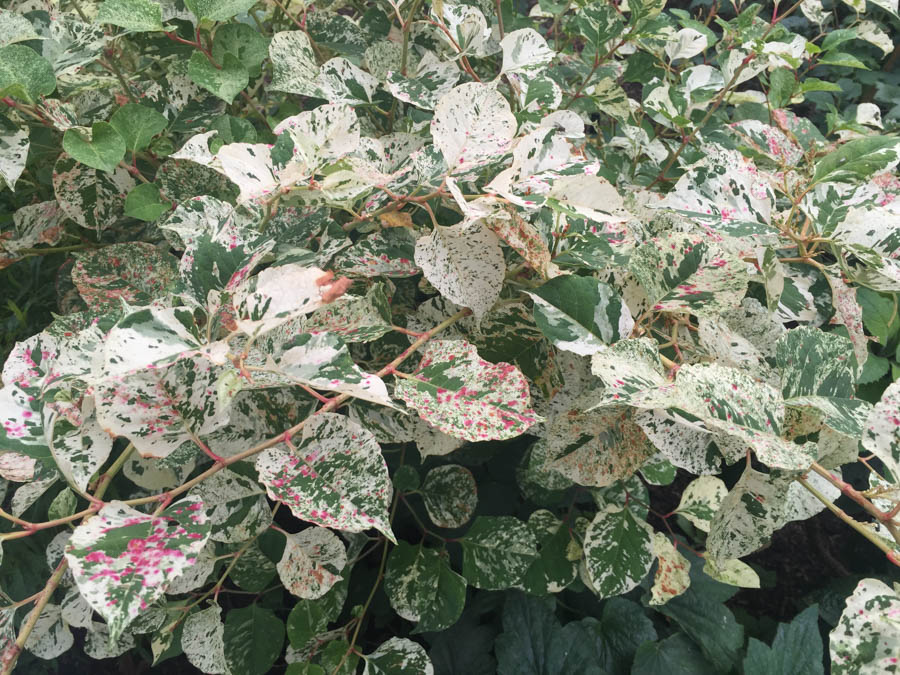
So very pretty!
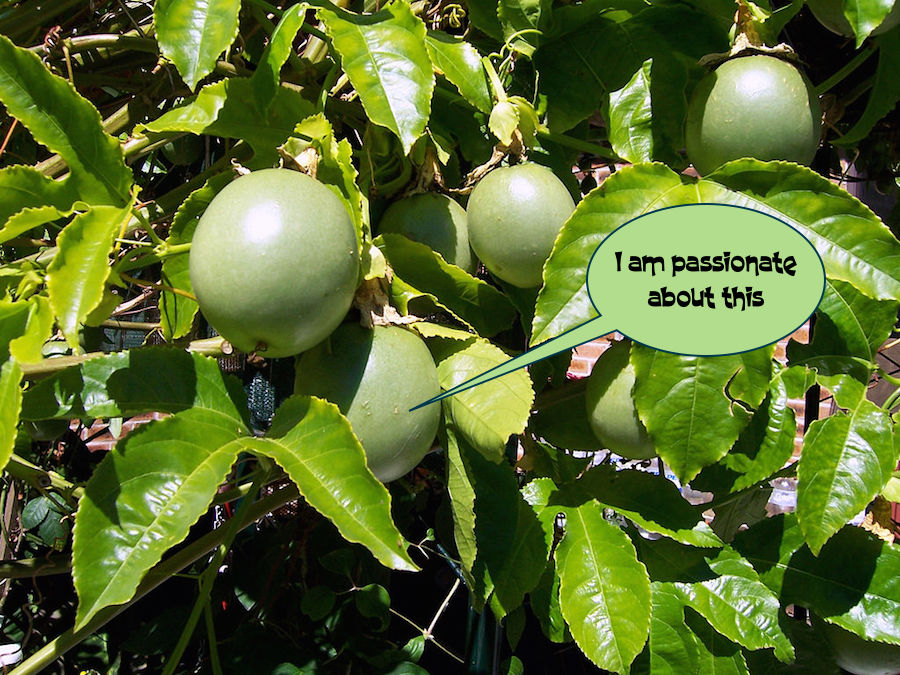
July 16th 2015


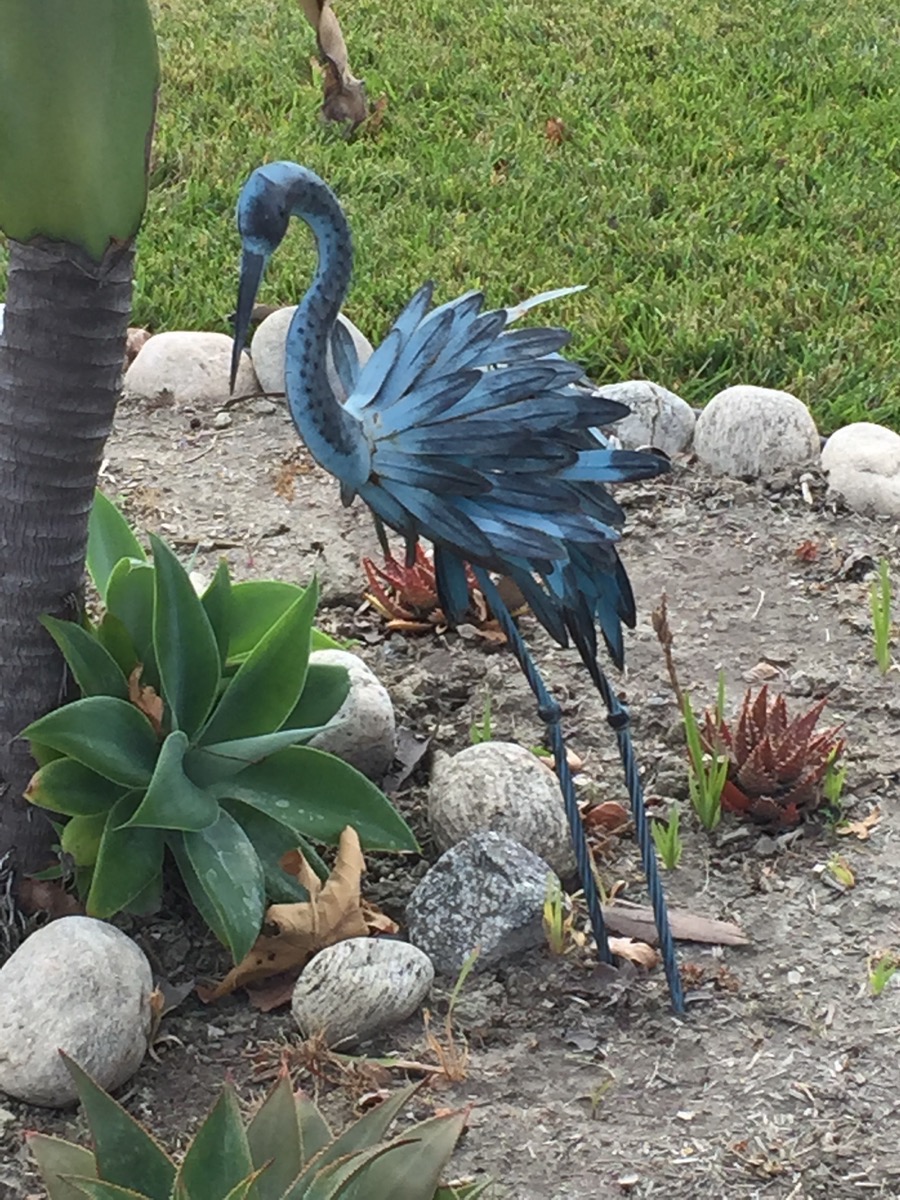
Paul's little blue friend
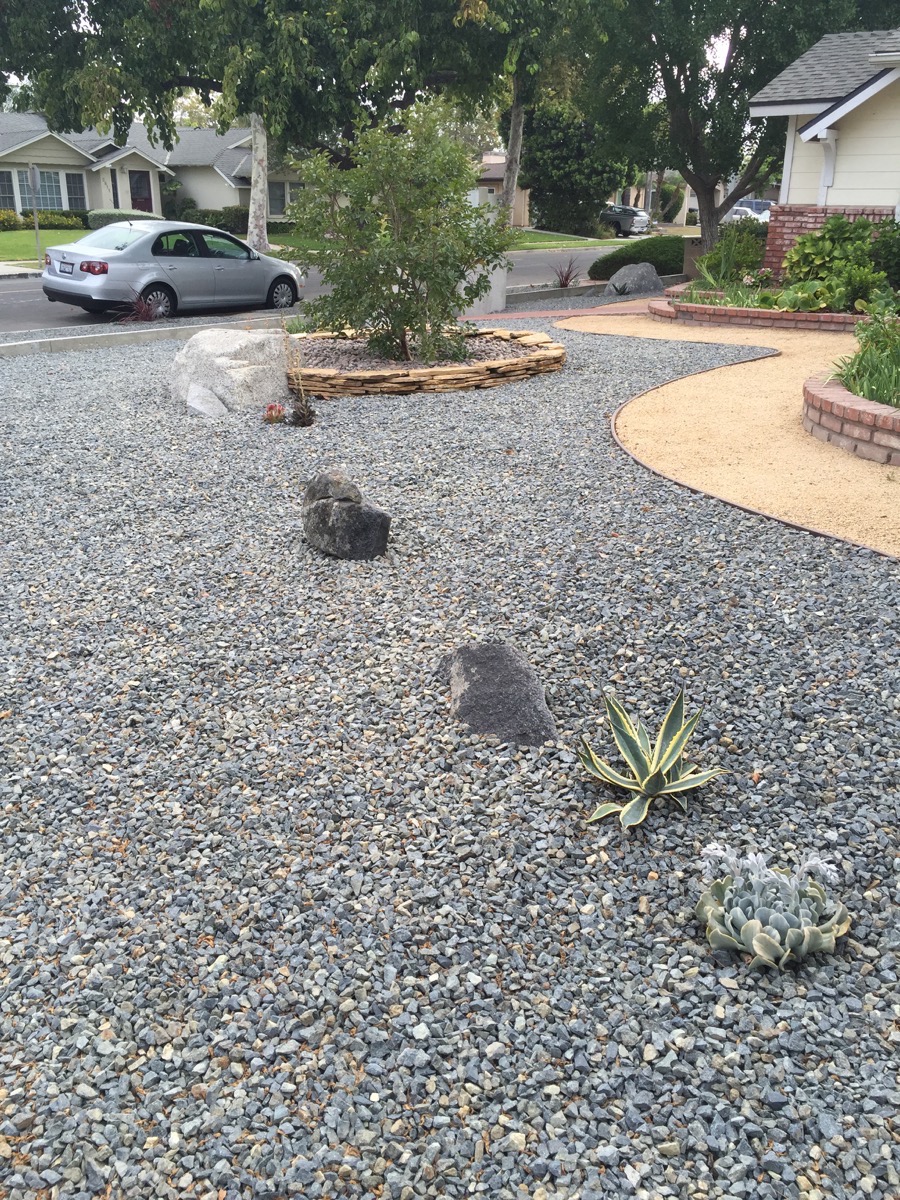
Rock front yards are becoming popular

She stares at my when I walk by!
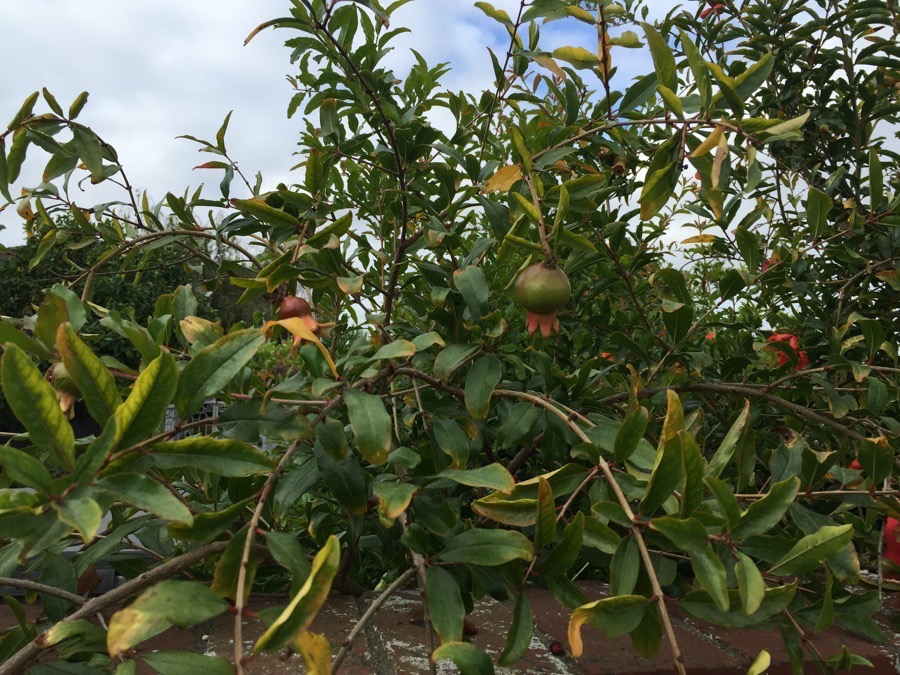
The pomegranates are doing well
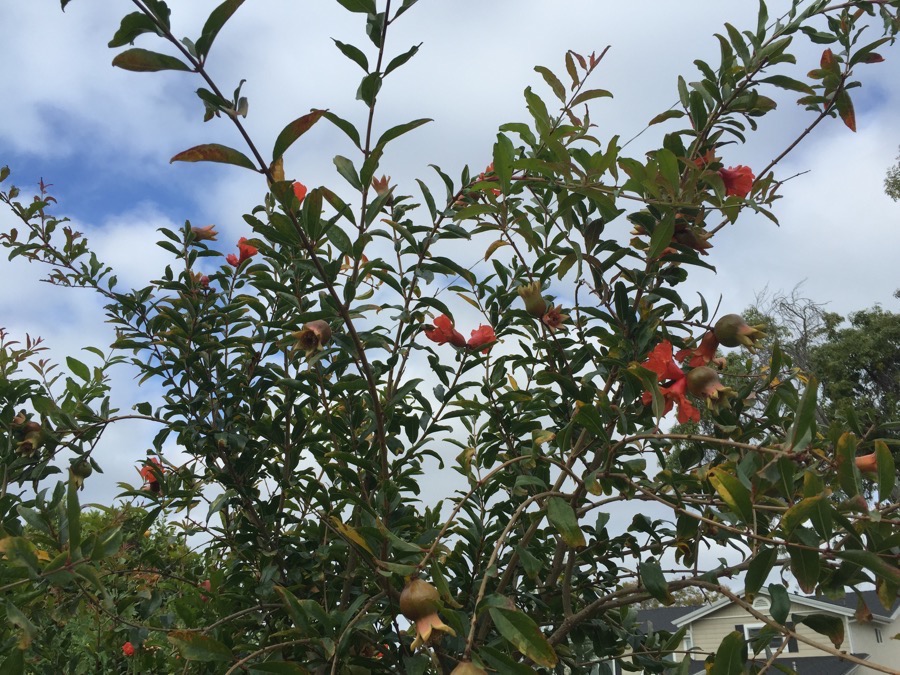
The plant is full of small fruit and blossoms
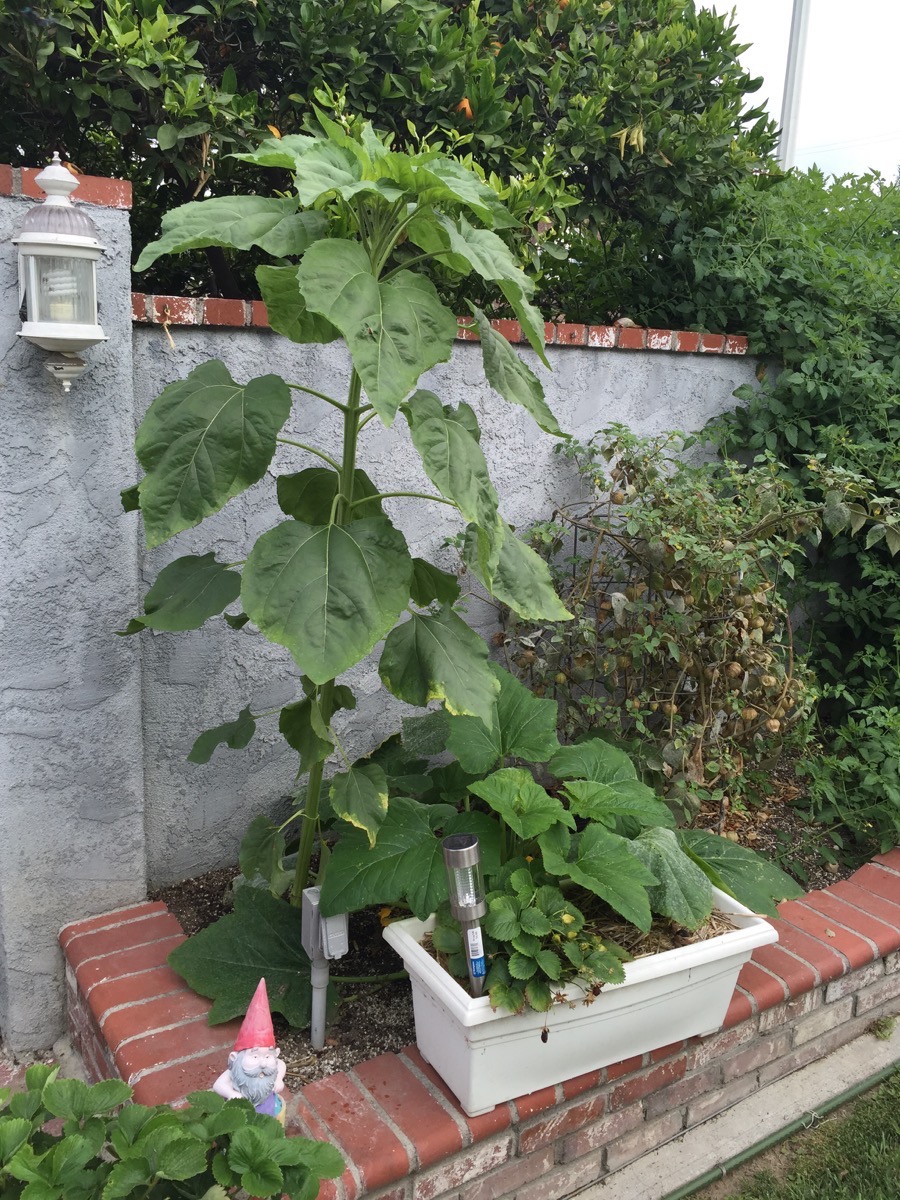
The sunflower is reaching for the sky!

For dinner tomorrow!
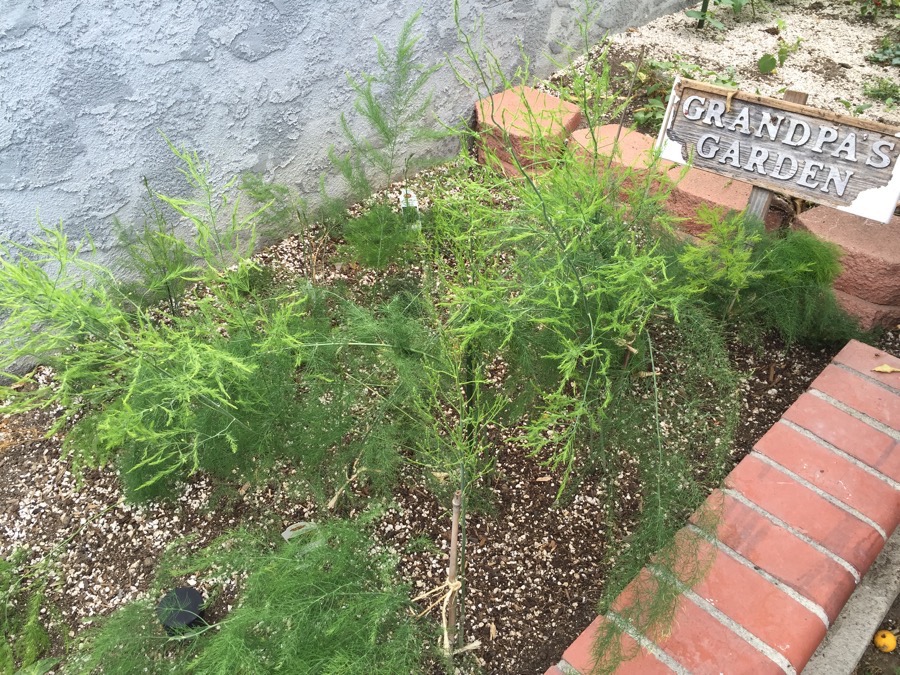
Two more years to wait! Asparagus is on its way!
July 12th 2015


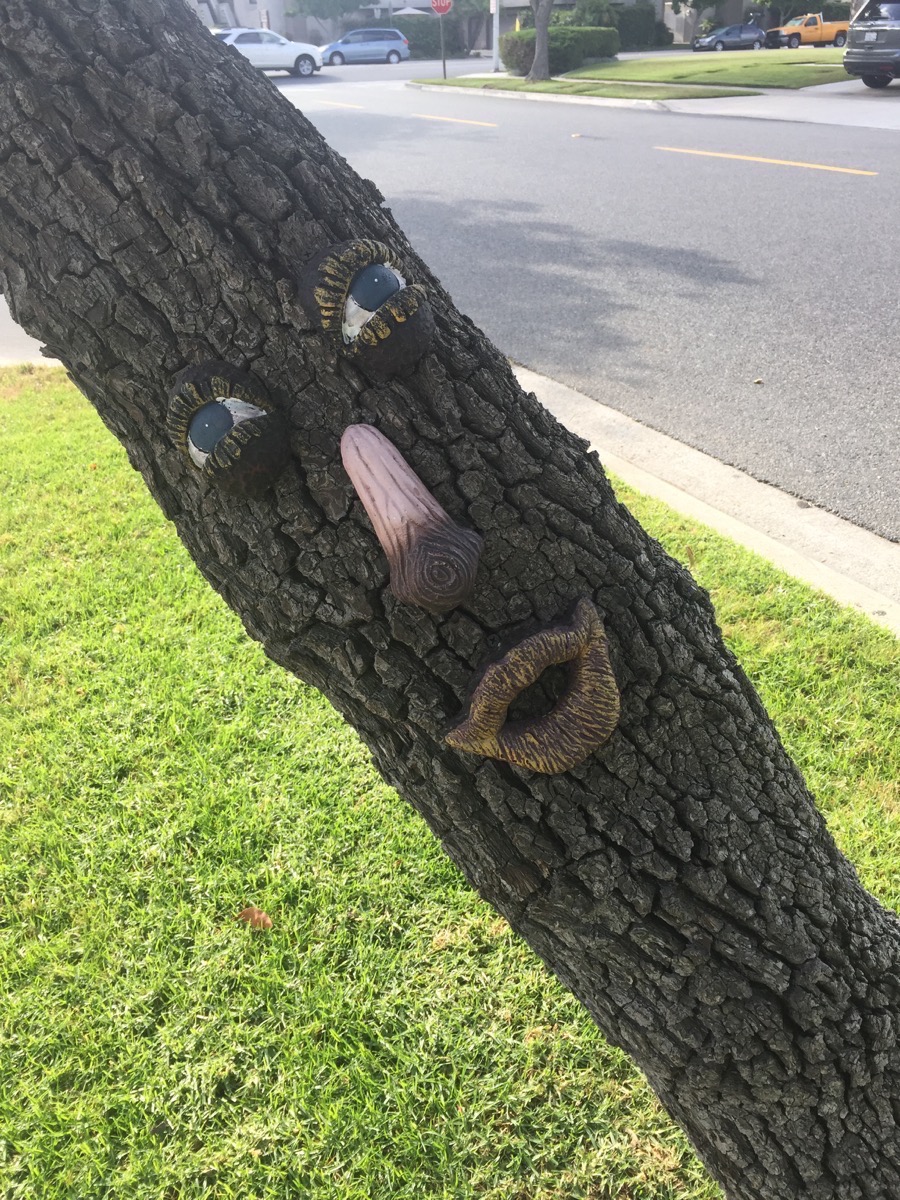
"Well hello there Paul... How is your walk going?"

The fruit is way up in the tree!
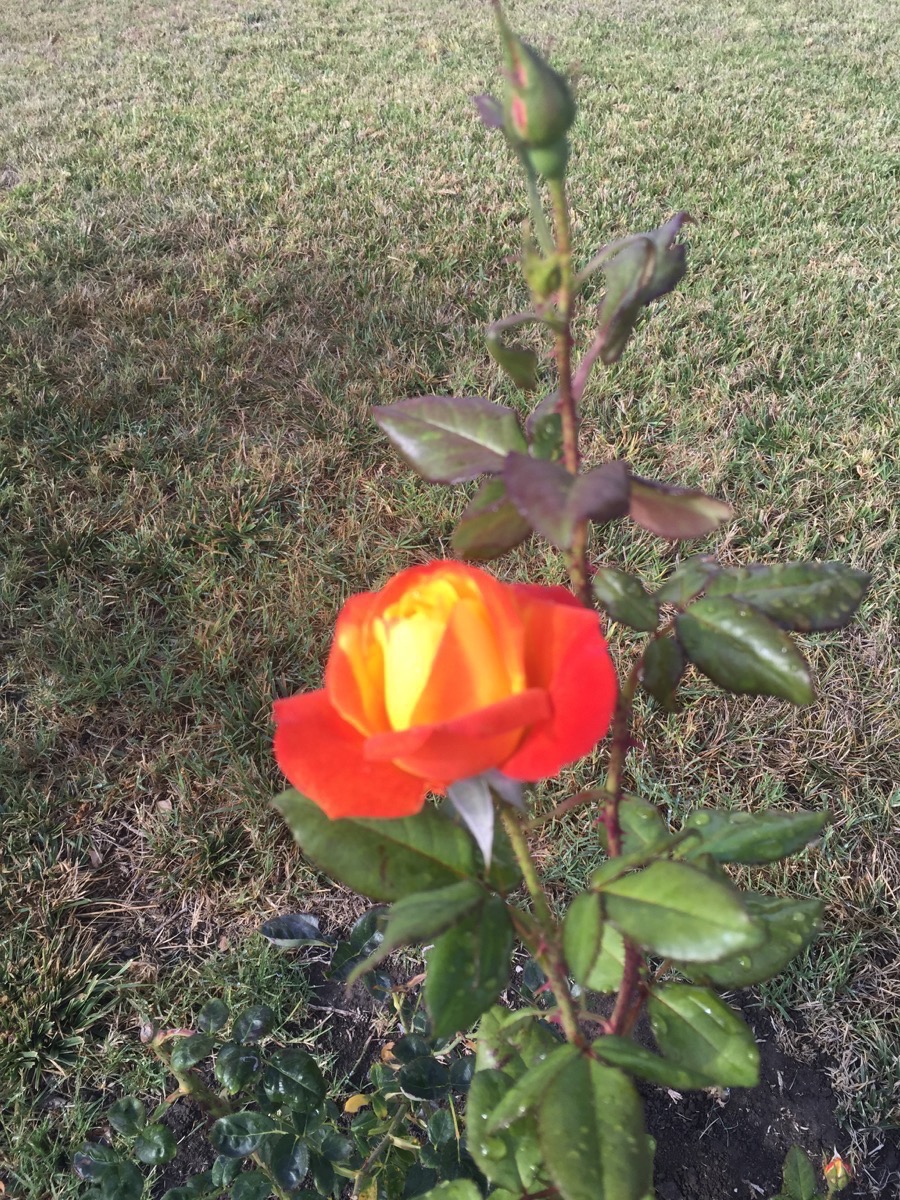
The rose looked like it was on fire
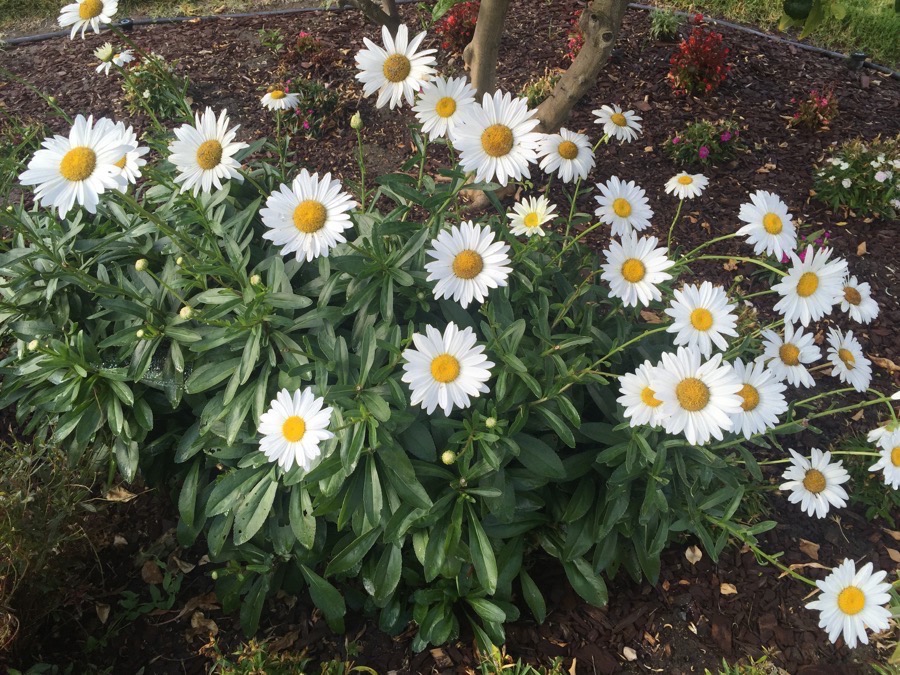
The Daisy's were amazing

Keeping everything watered
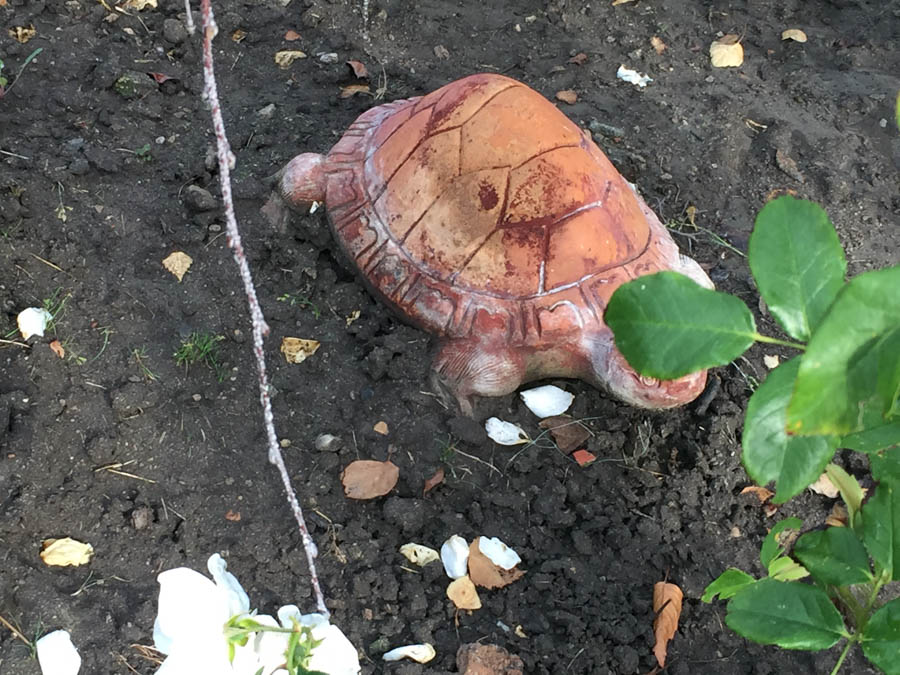
Follow me!
July 6th 2015 Top
Jon is crashed but Paul is raring to go! A little sad today as Jon must go home and back to work! Grandma and Paul want to "keep him".

Indeed! Very happy birthday
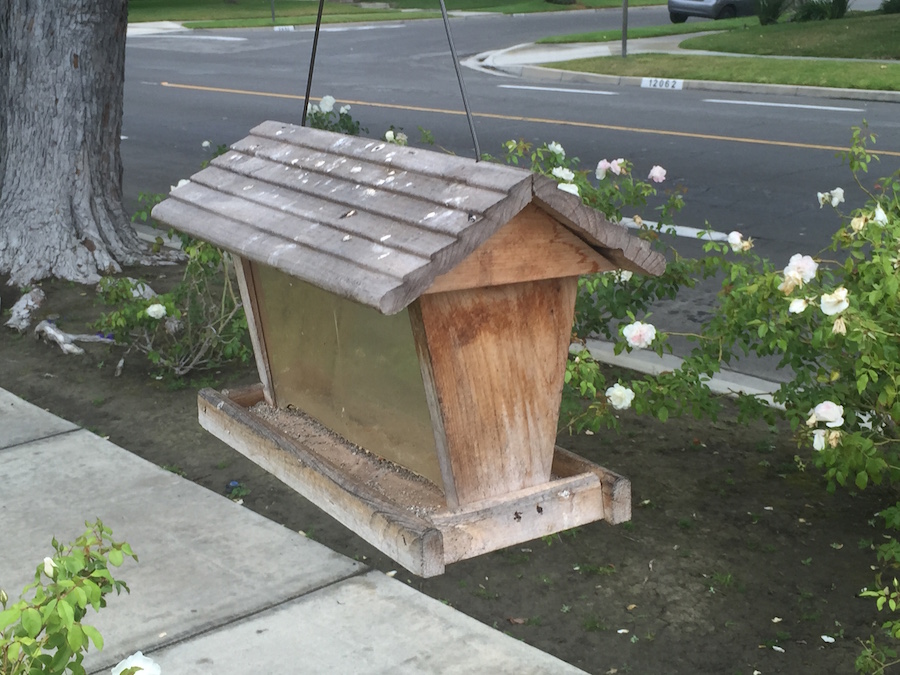
This house has been visited but the cleaning people have yet to show up!
July 4th 2015
Happy Birthday America... We love you! Jon and Grandpa Paul hit the streets early walking a mile and talking the entire time! We had a lot of partying to do today so we want to get our exercise in now!



Welcome to Rossmoor
July 2nd 2015 Top
Jon was here but still crashed after being upon until 2 am traveling to visit us... Paul let him sleep!


I was not really slow.... I stopped to take pictures
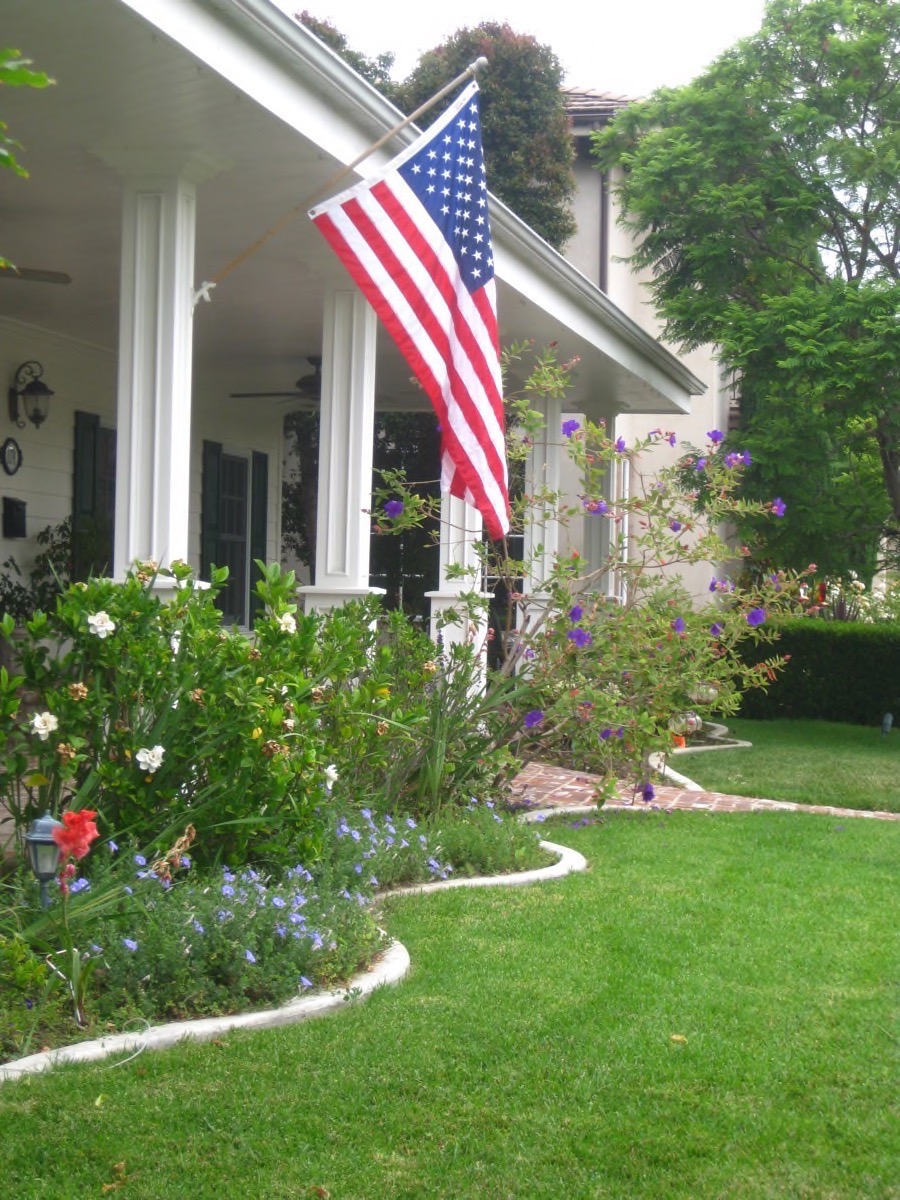
We love our patriotic neighborhood
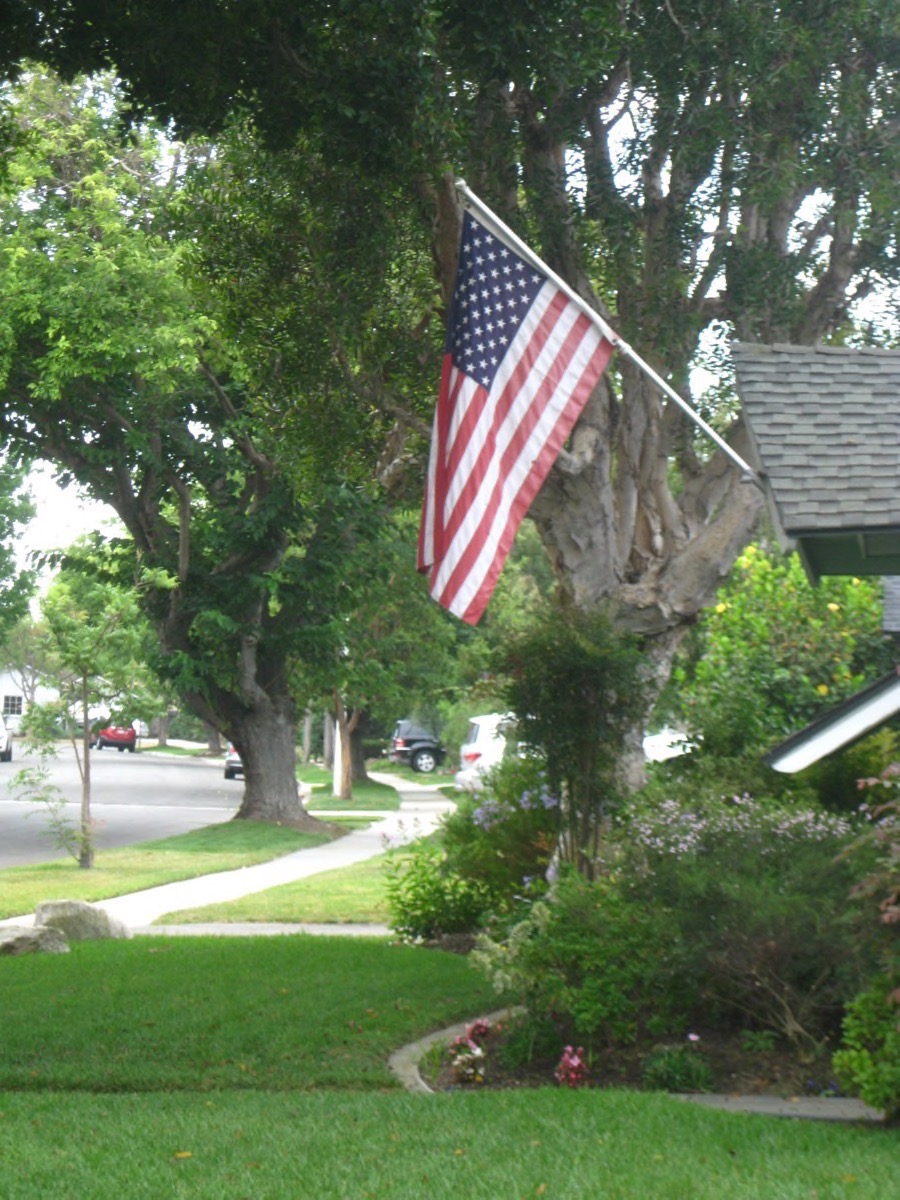
Flags waving everywhere
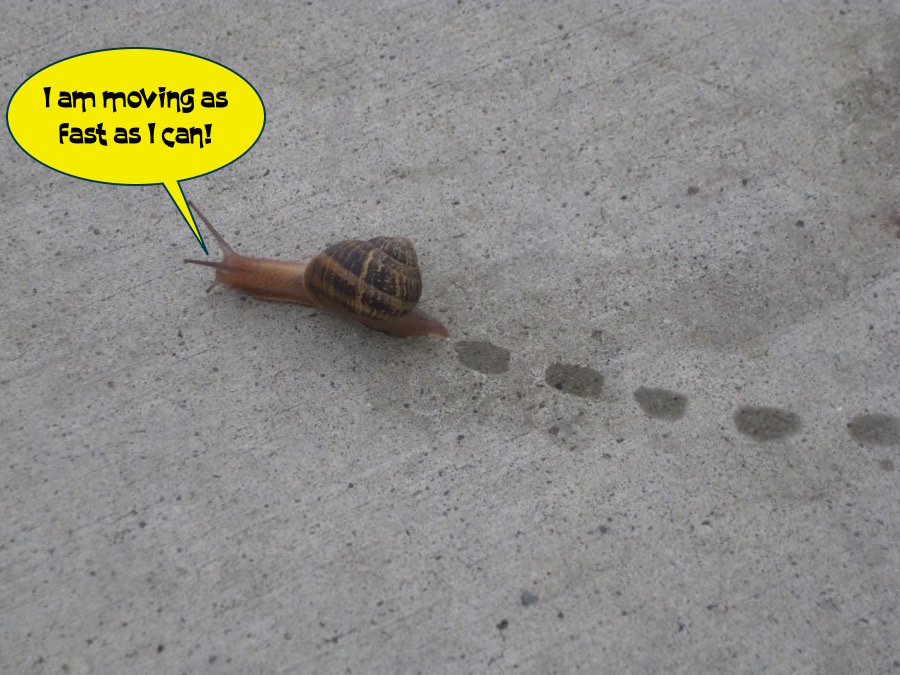
There is someone slower than Paul in the neighborhood
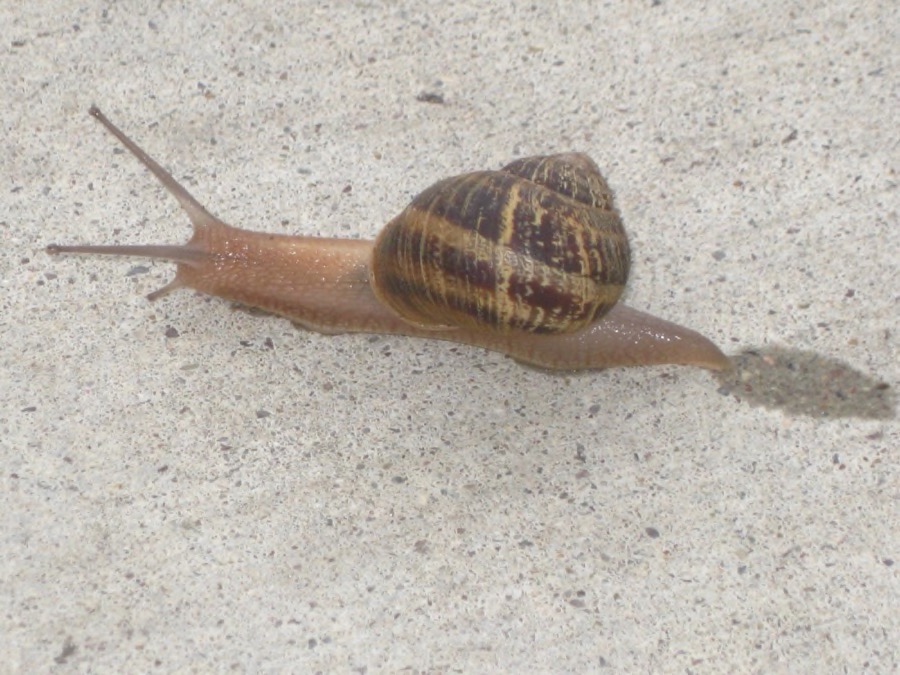
Zipping right along
Did You Know?
Fact 1 - Definition: A snail is one of numerous species of terrestrial air-breathing gastropods belonging to the genus Helix and many allied genera of the family Helicid. A gastropod has a one-piece coiled shell and flattened muscular foot with a head bearing stalked eyes. A mollusc is an invertebrate having a soft un-segmented body, usually enclosed in a shell.
Fact 2 - They are abundant in nearly all parts of the world except the arctic regions, and feed almost entirely on vegetation - a land snail.
Fact 3 - Other gastropods include fresh-water and marine snails
Fact 4 - Snails hibernate during the winter and live on their stored fat
Fact 5 - There are 200,000 species of snails
Fact 6 - The shell of land snails is usually light brown with darker brown bands which follow the spiral of the shell
Fact 7 - The largest land snail is the Ghana tiger snail, which can grow up to 12 inches
Fact 8 - The largest snail is the Syrinx Aruanus from Australia which grows up to 30 inches and can weigh 40 lbs
Fact 9 - The bottom of a snail's body is called the foot
Fact 10 - The foot of snails contains a gland that makes slime, a sticky substance that helps the snail move along
Fact 11 - The predators of snails include Chickens, Snakes, and Toads
Fact 12 - A snail grows a new spiral every year

Simply beautiful
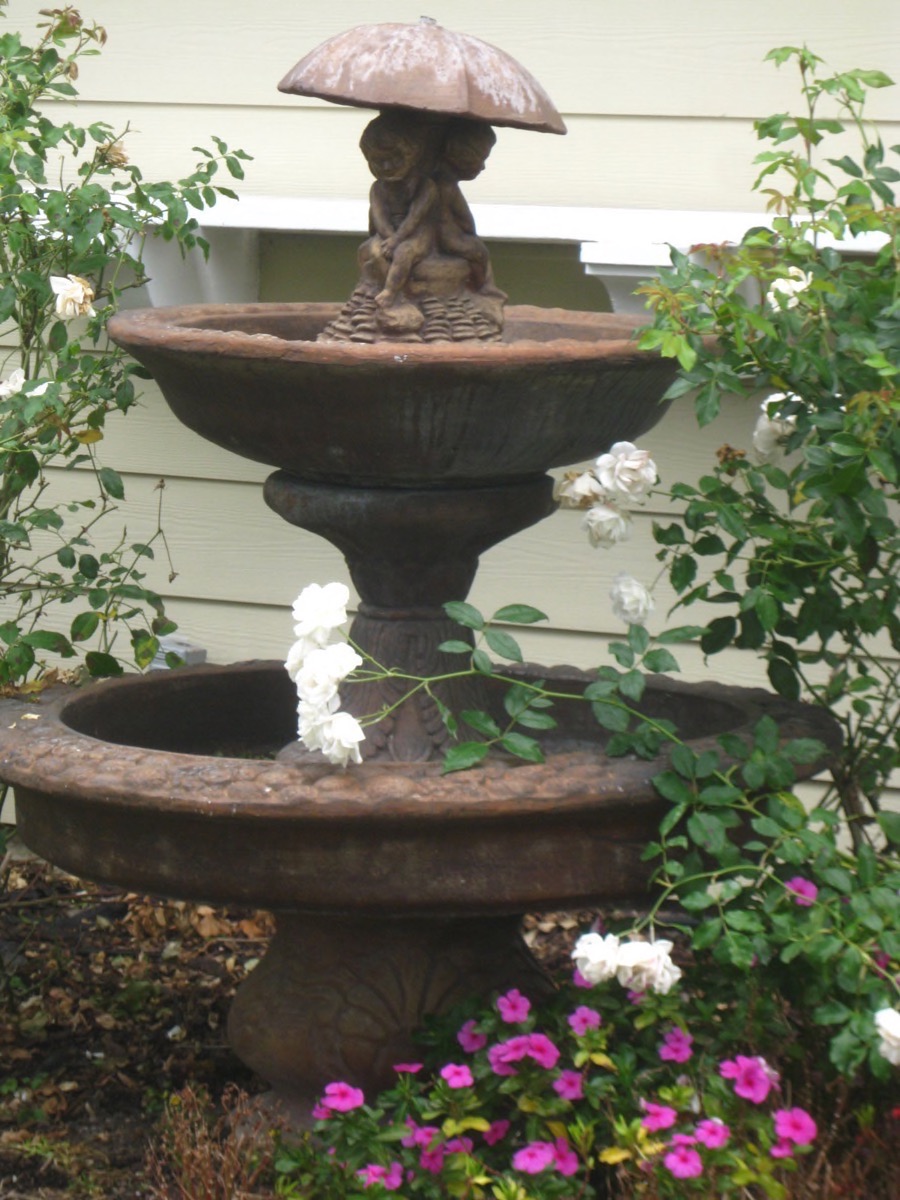
Once upon a time it had water
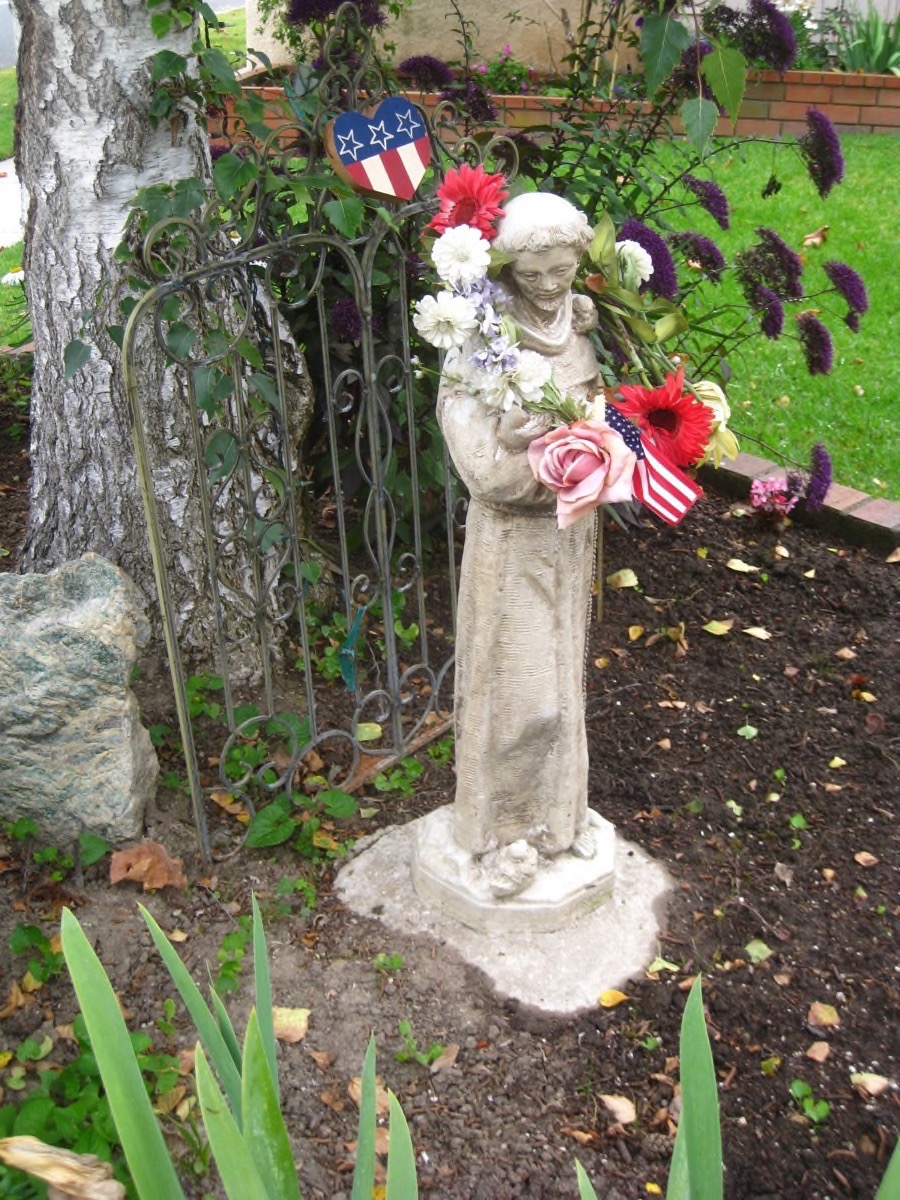
Decorated for the 4th of July
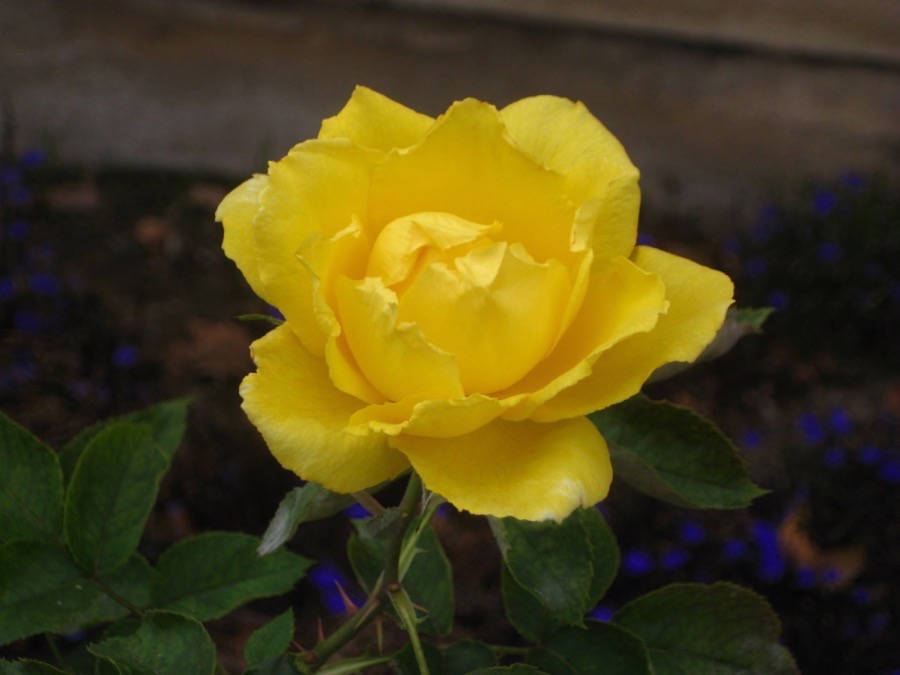
The "Yellow Rose Of Rossmoor"
Did You Know? - Rosa foetida, known by several common names, including Austrian briar, Persian yellow rose, and Austrian copper rose, is a species of rose, native to the foothills of the Caucasus Mountains in Georgia.
It has yellow flowers with a scent which some find objectionable. Since there were no yellow roses native to Europe, its introduction from Persia was an important addition to the cultivation of roses, and R. foetida is now an important contributor to the stock of cultivated roses.

We love our country

Read the shovel.... "Country Garden"
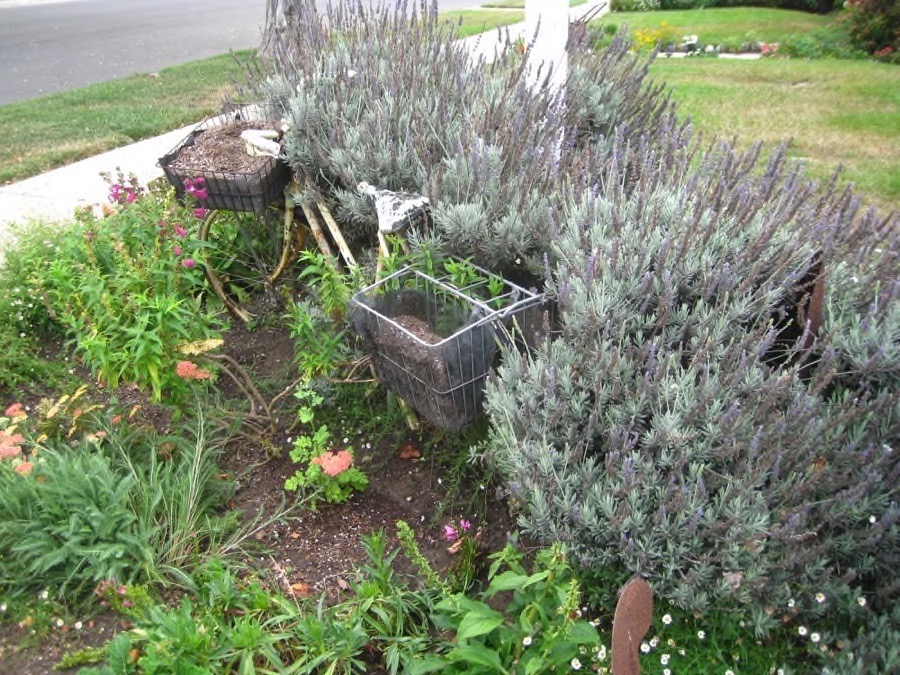
The old rusty bicycle makes for an excellent planter

A rustic birdhouse!
Did You Know? - A nest box, also spelled nestbox, is a man-made enclosure provided for animals to nest in. Nest boxes are most frequently utilized for birds, in which case they are also called birdhouses or a birdbox/bird box, but some mammalian species may also use them.
Placing nestboxes or roosting boxes may also be used to help maintain populations of particular species in an area.
The nest box was invented by the British conservationist Charles Waterton in the early 19th century to encourage more birdlife on the wildfowl and nature reserve he set up on his estate.
July 1st 2015 Top


A new route

It's nice to see people display their feelings
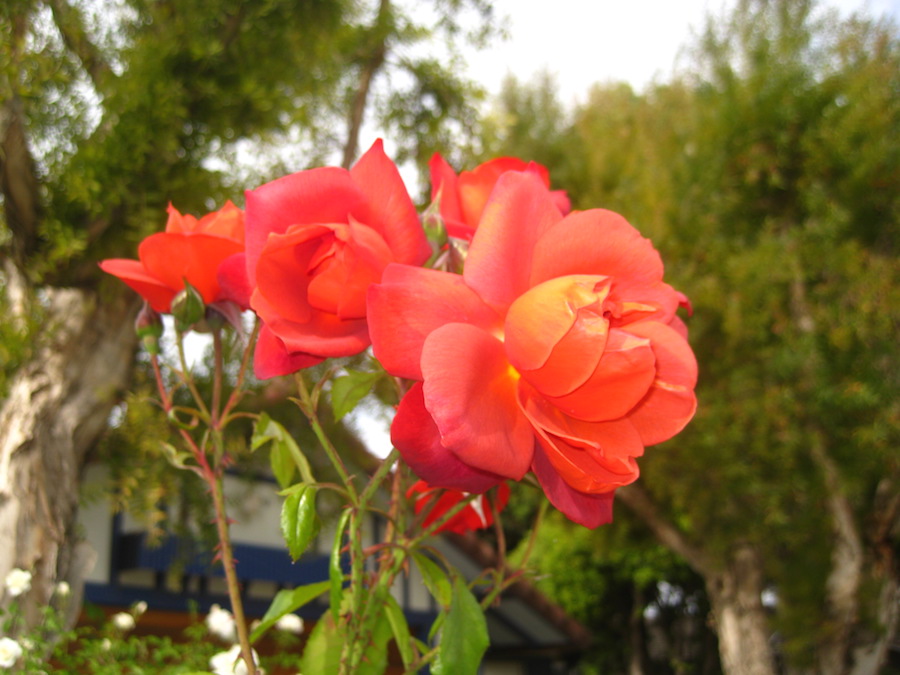
Simply beautiful!